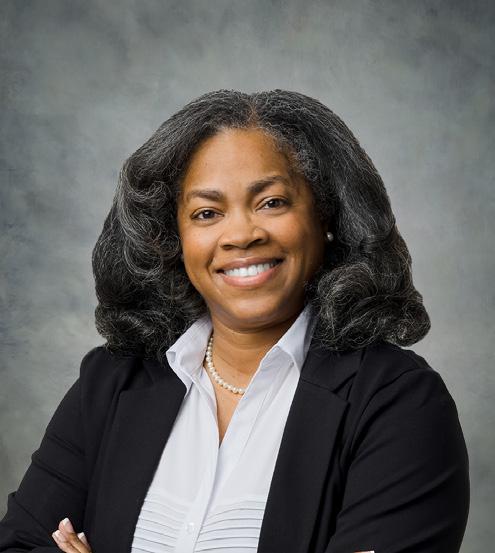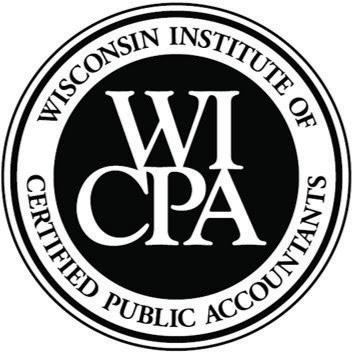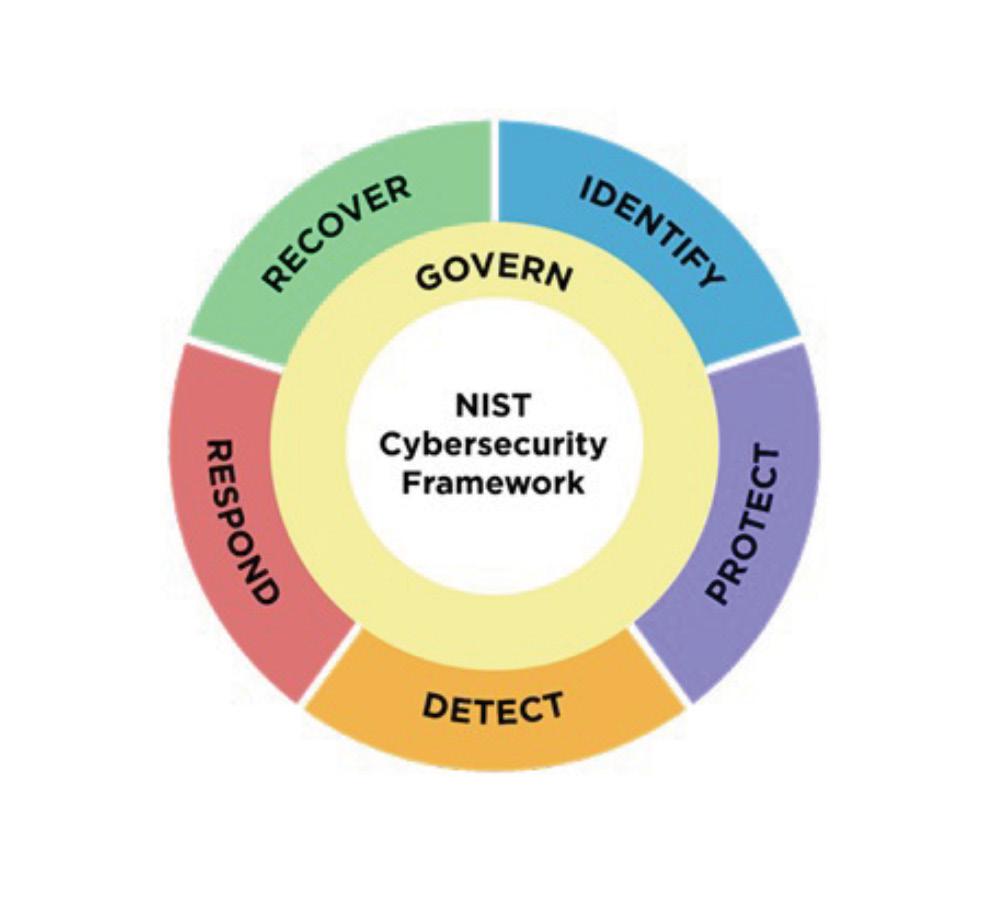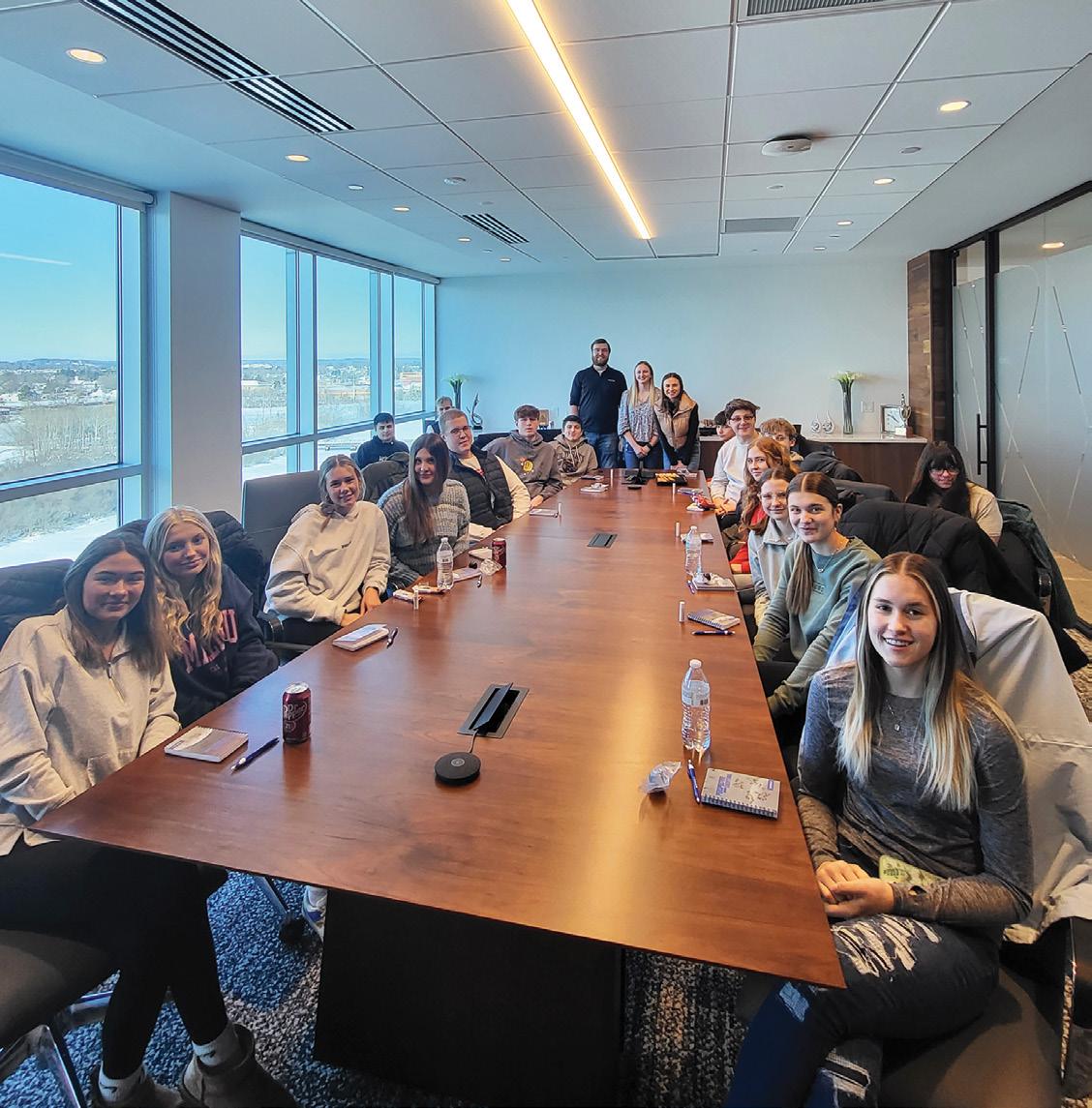
Member Benefit Provider
Trusted by accounting industry professionals nationwide, CPACharge is a simple,
solution that allows you to securely accept client credit and eCheck payments from anywhere.








Member Benefit Provider
Trusted by accounting industry professionals nationwide, CPACharge is a simple,
solution that allows you to securely accept client credit and eCheck payments from anywhere.






6 WICPA joins AICPA to voice concerns with BOI rollout
A letter has been sent toTreasury and FinCEN voicing serious concerns regarding the enforcement of the Beneficial Ownership Information reporting requirements.
8 From Challenge to Passion Ryan Hanson, CPA, CGMA, enjoys a challenge — and when he succeeds, it becomes a passion. See how the CPA Exam compares to climbing mountains.
By Marcia Tillett-Zinzow14 The evolution of billing: subscriptionbased models
Does the subscription billing trend in other sectors of business suggest an opportunity for innovation within accounting practices?
By Victoria Thayer, CPA, MSA and Shayla Coombs
18 ChatGPT and the accounting profession
As the adoption of generative AI becomes more prevalent, some question its role in a profession that uses spreadsheets above all else.
By Christina M. Olear, CPA and John Peatross, CPA
24 Did Barbie teach us about maintaining independence?
Buried in the storyline of the box-office hit was the subplot of Ruth Handler, inventor of the Barbie doll and co-founder of Mattel, whose story didn’t end well.
By Kathy Enstrom, MBA, EA28 TECHNOLOGY
The cybersecurity framework gets a facelift
The National Institute of Standards and Technology’s Cybersecurity Framework 2.0 introduces new content and tools.

By Jeffrey Lemmermann, CPA, CISA, CITP, CEH
32 ACCOUNTING & AUDITING
Crypto attestation updates and trends
As the FTX trial got underway last October, one question returned to the conversation: How exactly did this happen?
By Dr. Sean Stein-Smith, CPA, DBA, CMA, CGMA, CFE
34 HUMAN RESOURCES
Financial wellness: a strategic approach to employee retention and productivity
Stress over personal finance issues can significantly impact employee productivity and job satisfaction.
By Manuel Rosado, MBA
38 PROFESSIONAL DEVELOPMENT
The art of listening
Gain an understanding of the importance of good listening skills, and learn some simple yet effective tools to help build them.
By Dave Molenda, TDC, TDFC, TEQC
40 MEMBER BENEFITS
Guide to WICPA committees and boards

& CEO’s
On Balance is published five times a year by the Wisconsin Institute of Certified Public Accountants (WICPA). Change of address should be sent to: Membership, W233N2080 Ridgeview Pkwy, Suite 201, Waukesha, WI 53188; Phone: 262-785-0445 or 800-772-6939; Fax: 262-785-0838; email: comments@wicpa.org. Statements and opinions expressed are those of the authors and not necessarily those of the WICPA. Publication of an advertisement does not constitute an endorsement of the product or service by On Balance or the WICPA. Articles may be reproduced with permission. © Copyright 2024 On Balance
Chair
Ryan J. Hanson, CPA, CGMA
Chair-elect
Stacy A. Stinson, CPA, MBA
Past Chair
Matthew J. Schaefer, CPA, CGMA
Secretary/Treasurer
Lucien A. Beaudry, CPA, JD
Directors
Christopher M. Cholka, CPA, CGMA
Michael Donahue, CPA
Jessica B. Gatzke, CPA, MST
Tori M. Morrow, CPA, CGMA, MBA
Donna R. Scaffidi, CPA
AICPA Council
Ruth A. Kallio-Mielke, CPA
Neil R. Keller, CPA/ABV

• Highly Rated Carrier: AXA XL is rated (A+) by A.M. Best—one of the highest you can earn.
• Stacking Deductible Waivers: Get up to $50,000 of your deductible waived through early resolution, settlement through arbitration/mediation, and/or the use of an engagement letter—that’s real savings!
• Integrated Team: Sales, underwriting, and retention are all under one roof for faster turnarounds to save you time.

“I encourage each of you to step into a volunteer role to share your knowledge, to network and to make contributions to ensure the WICPA continues to be this strong career partner for you and your fellow members.”
As I begin my role as chair of the WICPA board of directors, I reflect on what the WICPA has been for me throughout my career. Earlier in my career, I participated in the Business and Industry Conference Planning Committee, which provided an opportunity to gain speaking experience. As a member of the Public Policy Committee, I gained knowledge of the legislative process, networking and advocacy experience when meeting with Wisconsin and federal legislators. The opportunity to join the board of directors and Finance Committee provided yet another experience in organizational governance. As I reflect, I realize the WICPA has been my “career partner.” By taking the initiative to get involved and contribute my time and resources, the WICPA has offered some of the most valuable opportunities of my career. Without a doubt, this organization has been a constant, reliable and valuable career partner.
The WICPA’s role in the partnership is twofold. In part, the WICPA provides resources and opportunities to individuals to level up professionally. It provides opportunities to further develop skills that typically are not offered in the work environment but are valued in the work environment. Some of these skills come from participating in continuing education, presenting at conferences, writing articles for publications or leading committees — all of which help develop networking skills, among other things.
All these development opportunities are offered by the WICPA. In addition, the organization is a guardian and advocate for the accounting and CPA profession. The WICPA monitors the legislative landscape, works closely with the AICPA and promotes the profession to improve the CPA pipeline.
Like all successful partnerships, the relationship is a twoway street. The value one partner receives is equal to the effort and resources one puts into the partnership. As accounting professionals, we also have roles in this partnership. One of our contributions is our time and knowledge. As a career partner, we must participate in events held by the WICPA, get involved in
continuing education as a participant or a presenter, or join one of the many committees as a member or a leader.
Another important contribution is providing our resources. It is incumbent on us to contribute to the success of the partnership by renewing our memberships, contributing to the WICPA Educational Foundation and CPAC/LIF, and promoting involvement in the WICPA to others. As a participant or leader in conference planning committees, you can shape the content and participate in the success of the events. Contributing to CPAC/LIF supports the WICPA in its efforts to monitor and ensure legislative actions that support the profession. All of these are our responsibilities as partners and members of our professional society — to ensure that our career partnership is successful.
You will get out of this partnership significantly more than you put into it. A great aspect of it is that there is no cap on what you can contribute. The more each of us participates, the stronger and more dynamic the WICPA partnership will become. We, as the membership community, will collectively benefit from each of our individual contributions.
I encourage each of you to step into a volunteer role to share your knowledge, to network and to make contributions to ensure the WICPA continues to be this strong career partner for you and your fellow members.
As I continue my partnership with the WICPA, I am energized and excited to contribute my time and expertise over the coming year as the chair of the board of directors. And I urge all of you to further your role in the successful career partnership you have with the WICPA.
Ryan J. Hanson, CPA, CGMA, is senior vice president and chief financial officer for Pekin Insurance and the WICPA’s 2024-2025 board of directors chair. Contact him at 309-478-2746 or rjhanson@pekininsurance.com.

| PRESIDENT & CEO’s MESSAGE
“I encourage you to invest in yourself, your career and your firm or organization by making the most of
your
membership!”
Information is power. Knowledge is power. Understanding how to get the most out of an investment leads to higher satisfaction. You joined the WICPA to invest in yourself, your career and your profession. How do you get the most out of your membership for yourself and your firm or organization?
Register for a virtual member orientation.
• Ask questions and learn more about the benefits, tools and volunteer opportunities available to you as a WICPA member.
• Take a personal tour of the website to learn how to update your profile, view members-only discounts, use the CPE & Special Event Catalog, access WICPA Connect and more.
Use the MY WICPA personal dashboard to put membership at your fingertips.
• Manage your profile and contact information.
• Update your areas of interest and volunteer opportunities.
• Find member benefits, such as discounts on credit card processing, insurance, check printing and many others.
• Renew your membership and make WICPA Educational Foundation donations in one transaction.
Easily track registrations, upcoming courses, events and meetings in MY CPE.
• See your upcoming WICPA programs, events and meetings.
• Access and download your CPE materials and certificates.
• Use the CPE Tracker to monitor your formal and informal CPE credits for the reporting period.
• Add other formal and informal CPE to the tracker to keep all your records in one place.
Explore various volunteer opportunities.
• Sustain and advance your profession by joining a committee.
• Attend legislative fundraisers and golf outings.
• Write for our publications, On Balance and CPA2b
• Present at a conference or breakfast program.
Give back to strengthen the profession.
• Educate students about CPA careers by presenting at high schools with WICPA materials (and swag) we provide to make it easy for you.
• Host an accounting presentation and tour at your organization for high school students.
• Read a book on financial literacy with students grades K-4 and discuss with WICPA-provided materials.
• Make a charitable donation to the WICPA Educational Foundation to support accounting awareness initiatives and pipeline campaigns.
• Make a contribution to CPAC or LIF to support advocacy to protect the profession and support good business legislation.
Ask questions, give advice and share information in the WICPA Connect online community.
• Read and participate in current discussions — or start a new one.
• Personalize your profile by controlling notifications and adding interests, education, experience, signatures and your photo.
• Use the Member Directory to find and connect to members across the state.
• Connect with specialized groups by joining a committee, such as Wisconsin or Federal Taxation, Business and Industry, Not-for-Profit and many others.
Designate an organization administrator to manage membership and registrations for everyone at your organization.
• Pay membership dues for your organization in one transaction.
• Register multiple individuals for programs.
• Update your organization’s roster and manage employees at multiple office locations.
• Add your organization’s information to Find a CPA. (Reach out to membership@wicpa.org or call 800-772-6939 to become an administrator.)
• Stay up to date with Frequency, our monthly member e-newsletter; our bimonthly magazine, On Balance; and CPA2b, our biannual magazine for students.
• Post your résumé or a job opening in the Career Center. I encourage you to invest in yourself, your career and your firm or organization by making the most of your membership!
Tammy J. Hofstede is president & CEO of the WICPA. Contact her at 262-785-0445, ext. 4518, or tammy@wicpa.org.

If you have not yet renewed your 2024–2025 membership, visit wicpa.org/renew for quick and easy online payment to keep your valuable member benefits coming, including On Balance magazine.
Pay your dues in the “My WICPA” section on the WICPA website. For information regarding your membership, contact Grace Hein at 800-772-6939 ext. 4517 or membership@wicpa.org.

Associated Bank Retirement Plan Services
H NEW Affinity Partner H
Associated Bank provides outstanding retirement plan solutions with a tradition of service excellence. We offer comprehensive retirement plan consulting and investment advisory services as well as our full-service, discretionary trustee platform that bundles plan administration, recordkeeping, custody and ERISA 3(38) investment management.
Bank-A-Count Corp. is a leading national printer of business checks located in central Wisconsin with an unwavering focus on low prices and exceptional customer service. We offer a variety of complementary items, including deposit products, pre-inked stamps, and custom print and mailing services.
H
CTaccess is a technology performance company. We use technology to improve how people work. As a managed services provider, we deliver people-focused, secure and operationally efficient outsourced IT. We also specialize in automating business processes with advanced workflow, artificial intelligence and e-form solutions.
In a letter dated April 3 and addressed to the U.S. Department of the Treasury and the Financial Crimes Enforcement Network (FinCEN), the WICPA and the AICPA voiced serious concerns regarding the enforcement of the Beneficial Ownership Information (BOI) reporting requirements.
The letter raises an alarm because of a March 1 court ruling, which finds that the Corporate Transparency Act is unconstitutional. This ruling only applies to National Small Business Association (NSBA) members as of March 1, meaning those NSBA members currently do not need to file a BOI report, but the filing requirement stands for all other businesses.


Consider
The WICPA Board of Directors provides strategic governance in accordance with the WICPA strategic plan, mission and vision. The board ensures the WICPA serves the diverse needs of members, enhances professional competency, promotes the value of members and the profession, advocates on behalf of the profession and builds community among members. New members began serving after they were elected May 9, 2024, at the Member Recognition Banquet and Annual Business Meeting.


President, CFO & Treasurer, Pekin Insurance Wisconsin Dells

Accounting, Concordia University, Mequon







SECRETARY/TREASURER
Lucien A. Beaudry, CPA, JD, Equity Shareholder, Reinhart Boerner Van Deuren s.c., Milwaukee







yan J. Hanson, CPA, CGMA, chief financial officer (CFO) at Pekin Insurance and the WICPA’s incoming board of directors chair, likes a challenge. It’s what attracted him to the CPA profession, and it also drives his personal interests, such as reaching mountain peaks. One of his mantras is “One’s greatest achievements start with seeking challenges beyond their reach.”

Hanson was born in La Crosse and grew up in Holmen, graduating from Holmen High School in 1995. He then headed to the University of Wisconsin–Eau Claire, where he studied accounting and management information systems and earned his bachelor’s degree along with obtaining an internship with Clifton Gunderson (now CliftonLarsonAllen).
An accounting career was not something Hanson had even thought of when he was in high school until his accounting teacher left the class with a substitute for a few weeks.
“She knelt down for literally 10 seconds and asked me what I was going to do once I was out of high school,” Hanson said. “I told her I didn’t know yet, and she said, ‘Maybe you should consider accounting.’ That’s all she said. Then she got up and walked away.”
Obviously, this casual comment made an impact. It inspired Hanson to enroll in college with hopes of working in business. But it was another educator who sealed the deal for him where accounting was concerned.
Her name is Lucretia Mattson, CPA, and she was the first female chair of the WICPA board back in 1998–1999. She also was an educator at UW–Eau Claire who taught accounting and tax courses for many years. Mattson didn’t pull any punches where her classes were concerned, Hanson noted.
“She was easily one of the hardest teachers there,” he said. “She never made you feel comfortable in the class because she was always pushing for excellence. I took every tax course that she offered, fully knowing that I would never go into tax. I just figured if I could get through her classes, maybe there would be something I could do in this career. I respect her deeply. She was a huge influence on my life.”
So Hanson pushed through and stuck with the profession. Without the inspiration of those two educators, he may have ended up in another profession altogether. But in addition to the inspirational
experience of Mattson’s teaching, the profession also offered him the kind of challenge he enjoyed — especially when it came to the CPA Exam.
“Not everybody has the CPA credential, but it was something I could work toward just to test myself. I had just graduated from college; I got married a month later and then started studying right away. I was working as an auditor at the time and studying, and then in December 2001 I took the exam,” he said.
His first job was auditing insurance companies of various types across the country and analyzing their financial statements. The work gave him the experience and desire to launch a career in the insurance industry. So, upon leaving, he went to work for a publicly traded insurer that he had been auditing. Hanson spent more than 16 years there before moving on to Palomar, a publicly traded specialty insurance company headquartered in La Jolla, California. He was hired there as VP–finance and treasurer and, in part, tasked with building a finance team, structuring transactions, managing collateral, and financial compilation.
“I was living in Wisconsin, but I’d travel out to La Jolla quite often. I was hiring people across the country, so I ended up having a person in every time zone,” Hanson noted.



Peoria, Illinois. In his role as CFO, he leads the accounting, finance, enterprise risk management (ERM), and procurement teams of about 30–35 people, many of them located around Peoria but a number working remotely, as he does when not traveling. His responsibilities include collaborating on corporate strategy and reinsurance, overseeing the company’s investment portfolio, forecasting, and rating agency relationships as well as financial compilations.
Along with his involvement with the WICPA, he has also served on several boards, including the board of directors of the national Insurance Accounting & Systems Association Inc., an organization that specializes in the insurance industry.
As noted earlier, Hanson likes a challenge. He has a passion for the outdoors and mountains that reach elevations of 14,000 feet or higher (“fourteeners”). He has climbed several peaks in Colorado, including Mt. Elbert, which he said is the second highest mountain in the contiguous U.S. (after Mt. Whitney). “It was tough — but a great experience on top,” he said.

Another outdoor pursuit Hanson has gotten into with his son, Evan, is scuba diving. When the family is on vacation in a place where they can do that, Hanson said, they’ll get the tanks and go diving.
“We’ve gone diving in Belize, Hawaii, the Caribbean, Pensacola [Florida] and, yes, even Wisconsin. When I worked for Palomar and was in La Jolla, I would get up early and go scuba diving with the sea lions before work. They’re very interactive — they’ll nibble your fins and play around with you a little bit.”
In addition to these outdoor activities, Hanson and his wife, Amanda — an oncology social worker for Ascension Sherman Cancer Center in Brookfield — enjoy watching 18-year-old Evan competitively race go-karts and, more recently, participate in snowboard racing; he was invited to race nationally this year. They have also been taking their son on pre-college visits, as he will graduate from Brookfield East High School in June. Evan seeks to major in mechanical and agricultural engineering.
Daughter Haydan, 16, definitely has a mind for business, having already been through a couple of small business startups.
“She made charcuterie boards for a few years, cutting the boards, sanding and staining them,” Hanson said. “She does different things to them — she makes some you can write on;
“
At the end of the day, are you a person who wants a seat at the table, in front of the board, making decisions? It’s the accountant, the CPA — that’s the person who’s going to be in that seat.
she’s burned some to make them look a little different. She has an Instagram account and does business as Old School Boards. She is on hiatus from it right now to focus on school, but when she’s doing it, she sells them through friends, family and craft fairs. She’s pretty entrepreneurial for sure.”
Hanson is passionate about the CPA profession and believes if more people knew about all the opportunities the career has to offer, more would go into it. A speaker at a Beta Alpha Psi meeting left an impression on him as a student.
“One thing he said really stuck with me. It was this: ‘A lot of people are going into technology right now because of the Y2K [end of millennium] hysteria. But at the end of the day, are you a person who wants a seat at the table, in front of the board, making decisions? It’s the accountant, the CPA — that’s the person who’s going to be in that seat.’ It really resonated with me,” Hanson said.
The incoming board chair has been a WICPA member for 20 years and is a huge proponent of the organization, having been inspired to join by Lucretia Mattson. His involvement has included serving on the Business & Industry Conference Planning and Public Policy committees, the board of directors Finance Committee, and as a director on the board of directors. He also served on the AICPA Council for a few years, involved there in strategic planning and legislative visits.
“I’m impressed with the quality and professionalism of the WICPA, whether it’s the magazine, other written materials, the conferences or events,” he said. “I give a lot of credit to the WICPA staff and leadership. Things are put together very well, and it’s very impressive from an outside perspective — and now, to have this opportunity to serve as board chair is an honor, and I look forward to it.”
Marcia Tillett-Zinzow is a Wisconsin-based freelance writer and editor. Contact her at mtzinzow@icloud.com.
The WICPA Educational Foundation Board of Directors provides strategic governance in accordance with the Foundation’s mission to play a pivotal role in supporting programs to improve awareness and perceptions by educating Wisconsin students and educators about the exciting opportunities available in the accounting profession. New members begin serving in May 2024.

Partner, Baker Tilly LLP

Wisconsin Women’s Business Initiative Corp.
DIRECTOR
Gina Skibo, CPA, Partner, Wipfli LLP


SECRETARY/TREASURER

Jeff Dewane, CPA, CMA, CGMA, Controller, Vinton Construction Co. Principal,
Port Washington High School



Dwayne Johnson & Associates


Bret Priaulx, CPA, Managing Director, Deloitte & Touche LLP

DIRECTOR

Jidong Zhang, Assistant Professor of Accounting, UW–Eau Claire












Fiduciary
Retirement
Improving



Bank reconciliation
Accounts payable
Organize the nancial records
Auditing nancial statements
Invoicing
Customer receipts
Accounts receivable
Document nancial transactions
Tax preparation
Inventory reports
Budgeting
Data
Make nancial recommendations


In the accounting industry, hourly billing has long been the standard, prized for its simplicity and direct link to compensating for an accountant’s time. This standard, set forth to compensate an accountant for time spent on each client separately, provides both accountants and their clients transparency in hours worked. However, the adoption of monthly subscriptions across a variety of business sectors, from Netflix to Adobe to software as a service (SaaS) platforms, suggests an opportunity for innovation within accounting practices. Why not, then, consider integrating subscription models into the realm of accounting services?
Subscription-based billing sets up a recurring monthly payment schedule instead of billing separately for time spent on individual projects. Essentially, with this billing model, you are selling services as a product. Subscription billing emerges as an innovative solution for CPA firms, promising not just enhanced profitability but also improved client satisfaction. This article explores subscription-based billing within CPA firms, discussing both its advantages and potential challenges, and showcases industry trends alongside practical examples.
The transition to subscription-based billing comes with numerous benefits for CPA firms. Primarily, it ensures a steady revenue stream, anchoring greater financial stability. This model significantly reduces the administrative load of meticulously tracking billable hours, thereby allowing firms to pivot toward value-driven client relationships rather than purely transactional interactions. Subscription billing embodies the principle of value-based pricing, in which clients compensate CPA firms for the impact and outcome of services rather than the sheer amount of time expended. Moreover, it synchronizes the needs of clients with those of the CPA firm, moving away from the possible conflict of interest inherent in hourly billing — which can occur if “billable hours” are knowingly or unknowingly padded to provide a higher charge for services. Without the
“
Subscription billing emerges as an innovative solution for CPA firms, promising not just enhanced profitability but also improved client satisfaction.
transactional work, accountants are able to build stronger relationships with their clients and better understand their financial situations.
The journey from hourly to subscription-based billing comes with its own set of hurdles. The deep-rooted tradition of hourly billing can lead both CPA firms and their clients to exhibit resistance toward this change. For example, some clients are indifferent to building a relationship with their accountant, preferring the transactional feel of hourly billing. Another challenge can be establishing scalable and tiered pricing models, potentially leading to underpricing services.
When working with transitioning intangible services to products, it can be difficult to evade “scope creep,” which occurs when clients request additional services not covered under their selected package. Clearly defining the various service packages can prevent these misunderstandings. Underbilling and overservicing are real challenges of subscription-based billing, and with no way to truly evade them, they are risks you have to be willing to overcome.
Firms considering a shift to subscription-based billing can benefit from adopting the following strategies:
Onboard clients gradually: Start with introducing only new clients to the subscription model. This will give you the opportunity to refine your pricing and service offerings without disrupting existing relationships.
Employ billing software: Utilizing specialized billing software, such as Ignition, can streamline the transition by automating many of the administrative tasks required to manage subscriptions. These software applications can
also deliver proposals; giving your proposal as a deliverable already puts you one step closer to transitioning your services to products.
Consult with current clients: and incorporating client preferences into your transition strategy to ensure the new method aligns with your clients’ needs and expectations. The key to a smooth and efficient transition from hourly to subscription-based billing is communication with your clients.
Develop a flexible pricing structure: pricing tiers that accommodate a diverse range of client needs will help prevent the risk of scope creep. Being able to scale your pricing model is key. For example, Kruze Consulting, a national startup accounting and bookkeeping firm, bases its pricing tiers on services it provides in each package; while Xendoo, which provides outsourced accounting services, bases its pricing on each client’s revenue.
Conduct personalized client discovery: discovery sessions for new clients leads to deeper understanding of their unique requirements, allowing for tailored subscription offerings that maximize value. Getting to know your clients before they sign will ensure they are getting the most from their subscriptions.
Initially a software company, inDinero recognized the evolving needs of its clients two years after launch and expanded its offerings to include accounting and bookkeeping services. Embracing a subscription-based model, inDinero placed a strong emphasis on enhancing the client experience by leveraging technology to streamline services. This strategic shift allowed inDinero to focus more closely on customer needs without the constraints of hourly billing, facilitating a deeper understanding of client businesses and fostering more meaningful relationships. This approach not only optimized their services but also significantly contributed to their growth, with revenues soaring to $14.6 million over 11 years. inDinero’s success story serves as a testament to how subscription billing can drive client-centric growth and ensure sustainability in the competitive accounting industry.
The adoption of subscription models in the tech industry highlights their potential applicability in the CPA sector. Pioneers like Xendoo, inDinero and Kruze Consulting have embraced subscription billing, marking a significant trend toward innovation in billing practices within the accounting field. Such models highlight flexibility and emphasize the industry’s readiness to adapt to evolving business landscapes.
During the 2023 AICPA Leadership Academy, AICPA CEO Barry Melancon, CPA, CGMA, stated that this





1
Christina M. Olear, CPA, and JohnPeatross,
CPA
While often considered a traditional profession, accounting has really always evolved and embraced innovative technologies to remain competitive and enhance efficiencies. One such advancement that has garnered significant attention in the past year is the emergence of generative artificial intelligence (AI), with ChatGPT leading the way. The technology has the potential to transform many industries, including the accounting field.
As adoption of generative AI becomes more prevalent, so too have the questions surrounding its role in a profession that uses spreadsheets above all else. This article takes a step into the world of ChatGPT and generative AI and explains how ChatGPT and programs like it will impact the accounting profession.
ChatGPT vs. generative AI: Is there a difference?
AI tools have been around for decades, so why has there been a lot of hype around ChatGPT (a form of AI) this year? We will first review AI and consider specific AI examples before we dive into ChatGPT.
As described on Investopedia.com, artificial intelligence refers to machines that are programmed to simulate human intelligence and actions. Often, the term is applied to machines that exhibit learning and problem-solving traits.1 AI examples include the virtual assistants Alexa and Siri, chatbots and self-driving cars.
Essentially, AI uses logic and algorithms to identify patterns and efficiently solve problems. Its integration into mainstream consumer products and services (Alexa, Siri), along with advances in machine learning and algorithms, have led to explosive growth in this technology.
Generative AI is a subset of AI that focuses on generating content based on patterns it picks up from existing data. It involves large datasets and training a model through the process of machine learning to generate content that is both contextually relevant and coherent.
ChatGPT is one of many generative AI tools. What makes it different is its ability to generate humanlike text

“ While often considered a traditional profession, accounting has really always evolved and embraced innovative technologies to remain competitive and enhance efficiencies.
responses in a conversational manner. While many other AI applications have the ability to process text inputs, ChatGPT’s design allows it to do so in a way that is accessible to a wider population while maintaining its efficacy. Currently, there are two versions of ChatGPT available: ChatGPT-3.5 and ChatGPT Plus. Access to ChatGPT-3.5 is free when creating an account with OpenAI, the developer of ChatGPT. You will need to pay a monthly subscription for ChatGPT Plus, which includes ChatGPT-4. The latter version opens the door to many more uses and produces better results.
These tools facilitate efficiency and automation, and the possible uses are endless. Some general examples include the following:
• ChatGPT can generate letters and emails with only a sentence or two of input.
• ChatGPT can summarize a 20-page report into one page of main points in seconds.
• ChatGPT can dramatically reduce the time needed to produce PowerPoint slides.
We’ll discuss more accounting-related use cases later in the feature.
The humanlike, text-based platform mentioned above offers users an interaction that feels as if you are communicating with another person. Asking ChatGPT to perform a task is known as “prompting.” As society gets better at asking questions (prompt engineering), the technology will produce better results.
PerformanceAccuracy/Pattern Recognition
Ability to provide precise and relevant responses along with pattern recognition.
Accessibility
No or low cost and no coding skills required.
Mimics Human Interaction
Ability to engage in "human-like" interactions.
Automation
Automates repetitive or routine tasks.
Expansion Capability
Extends functionality, which allows for customization.
While the main focus of this article is ChatGPT, it is important to note that there are numerous generative AI tools available to explore. Google’s Gemini (formerly Bard) and Microsoft’s Bing function similarly to ChatGPT, and there are various other generative AIs that focus on image and audio generation, among other specializations. Specifically for CPAs, AICPA’s CPA.com recently released a suite of tools to help accounting professionals enhance their knowledge of generative AI.2
ChatGPT sure seems to have everyone excited (in both positive and negative ways). This is because of the huge value proposition ChatGPT has going for itself. The program in its latest version significantly increased its accuracy, performance and capabilities while still maintaining accessibility. The table below highlights five ChatGPT features and compares the performance of GPT-3.5 versus GPT-4.
2 www.cpa.com/Gen-AI
Good level of accuracy and pattern recognition, but may sometimes produce irrelevant or incorrect responses.
Highly accessible: free and no coding skills required.
Can mimic human interaction to a certain extent, but may lack in understanding nuanced or complex queries.
Can automate simple tasks; may struggle with more complex tasks.
Lacks strong expansion capabilities.
Significantly improved accuracy and pattern recognition, leading to more precise and relevant responses.
Highly accessible: $20 per month and no coding skills required.
Excels in mimicking human interaction, with a better understanding of nuanced and complex queries, providing a more natural conversational experience.
Enhanced automation capabilities; able to handle more complex tasks efficiently.
Lacks strong expansion capabilities.
ChatGPT is a powerful tool with impressive capabilities. ChatGPT-3.5 is free and is good at many tasks. ChatGPT-4 is $20 per month, and its improved quality is noticeable. ChatGPT-4 produces more accurate results, provides better interaction, and offers a higher degree of customization compared with ChatGPT-3.5. ChatGPT-4 allows the user access to real-time data via plug-ins and beta settings. The plug-ins that are available help you easily create charts and slides, summarize PDFs or websites, and even order groceries or book flights. The numerous plug-ins significantly expand how you can use ChatGPT-4.
The potential benefits that ChatGPT can bring to the accounting profession boggle the mind, so it is critical to understand the relevant risks of this controversial technology. Following are some of the more current and pragmatic risks accountants will encounter with the current iterations of ChatGPT and similar programs.

Misinformation/inaccuracy/quality control: ChatGPT can create fabulously flawed content because it has a remarkable ability to produce information that is incorrect but sounds accurate. The content product is based on the data it was trained on; and, as a machine, it lacks true understanding and context. It’s also not uncommon for the software to misunderstand prompts created by its users.
ChatGPT can impressively “make up” information that is wrong or misleading in the process of creating the coherent response that it has been designed to make. We have witnessed many examples of overgeneralizations and the creation of examples or quotes that make no sense. There have even been cases where it fabricated references and attributed facts to improper or nonexistent sources.
Because most users opt for the free version of the software, some of these drawbacks should be expected. However, a lack of quality control around content inaccuracies has gotten many users into trouble.
Bias and inappropriate content: ChatGPT is trained on enormous sets of data so that it can perform its conversational functions, but there are limitations to this method. For one, the data used for training only goes through September 2021. In addition to the historical time limitation, data has been pulled from a wide range of internet sources, which could lead to unintended biases in the software’s responses to prompts. If a user asks ChatGPT for information that is based on biased training data, they could end up with a biased, harmful or inappropriate response.
Privacy: To further develop the software, ChatGPT collects data about the prompts and conversations that users have within the software. As is the case for every social media platform, it is important to consider the content we want to
“
The potential benefits that ChatGPT can bring to the accounting profession boggle the mind, so it is critical to understand the relevant risks of this controversial technology.
disclose. Since working with ChatGPT feels like you are texting a friend, you could easily be lulled into a false sense of security or safety. Inadvertent inclusion of private or sensitive information about yourself, others or employers is a real risk as prompts are created and your focus is on the tasks ChatGPT is being used to complete.
Some organizations have been communicating to their employees to not put sensitive or proprietary information into ChatGPT for fear they will inadvertently leak information. Many others have remained silent on the issue. Ideally, more organizations would come out with guidelines for their employees on how to use the software in a professional environment to enlist the efficiencies of the tool without adding unnecessary levels of exposure.
Plagiarism: If writing reports that you purport to be your own work product, there is a chance that plagiarism or copyright issues could rear their ugly heads. Because generative AI is trained on massive amounts of accumulated data, there is a chance that the resulting text could be generated exactly the same as the input or too closely paraphrased that a notation would be required. To use
another’s thoughts, observations or conclusions without proper acknowledgement is plagiarism. In addition, data used to build the generative AI often come from sources that are copyrighted and used without permission. If this material surfaces in a recognizable form, it could be a potential copyright violation.3
Responsible use of this technology requires careful consideration of the risks. As the technology continues to evolve, it will be essential for users to understand how they can best leverage the software while mitigating risks.
Accountants are finding numerous practical and innovative use cases for integrating ChatGPT into their daily workflows. AI-driven conversational tools are becoming valuable at streamlining processes, enhancing efficiency and delivering more comprehensive service packages. For all accountants, ChatGPT can be a useful tool for creating content such as articles, reports, emails and internal process documents. The table below offers more specialized uses.

Tax
• Automated Tax Calculations
• Tax Law Interpretation
• Tax Planning Advice
Audit
• Automated Audit Procedures
• Audit Documentation
• Fraud Detection
Coding
• Code Generation
• Code Review
• Automated Testing
Technical Accounting
• Financial Reporting Automation
• Accounting Standards Interpretation
• Technical Research
3 Wes Cowley, “Why I Don’t Use LLMs in My Work,” Words by Wes (May 5, 2023).
“ For all accountants, ChatGPT can be a useful tool for creating content such as articles, reports, emails and internal process documents.
Much like Excel has been, ChatGPT will be a tool professionals use as they perform their work, but it has the power to revolutionize the way accountants perform certain tasks. Historically, new tools allow skilled accountants to spend less time on simple yet time-consuming tasks and more time on higher-level work. Is the current version of ChatGPT going to be as revolutionary for accountants as Excel? That is to be determined. We can certainly say, however, the technology is going to be transformative and has the potential to support accountants in areas that Excel cannot. Following are some of the high-level impacts that we believe ChatGPT will have on accounting professionals.

“
With the massive potential that ChatGPT brings to the table, CPAs need to update their skills to leverage the technology.
Skill sets will adapt to the new technology: A tool is only as good as the person using it. With the massive potential that ChatGPT brings to the table, CPAs need to update their skills to leverage the technology. In fact, a few surveys indicate a majority of business leaders are looking to hire candidates with some ChatGPT skills.4 One such skill is prompt engineering, which is the practice of carefully designing prompts to guide AI models. Better prompts equate to better results. Skilled users can create prompts that provide better content in less time. One day, entry-level employees may regard prompt-engineering to be just as essential as proficiency in Microsoft Excel. On top of the specific skills to use the software, continuous tech learning will be essential. Additionally, improvement in our emotional intelligence skills will be necessary as we become more involved in cross-department collaboration, since we will have more high-level responsibilities and AI will take on more of the task work. An increase in technology skills, along with growth in emotional intelligence, will enable effective collaboration with departments such as IT, operations, risk management, legal, etc.
The tools will evolve with AI: One remarkable thing about ChatGPT is its adaptability to new information and situations. In recent years, accountants have been using a variety of tools to help read documents and process information in an effort to make their lives easier. ChatGPT can identify key information and summarize documents in a matter of minutes. In addition to improving on existing tools, ChatGPT can act as a virtual collaborator, offering real-time assistance and guidance. Accountants will rely on
4 Aaron Mok, “ChatGPT Experience May Be Able to Get You That Job – More than 90% of Potential Employers Are Looking for Workers Who Use the Chatbot,” Insider (April 27, 2023).
AI systems to automate repetitive tasks, flag potential errors and provide instant access to relevant information.
Job responsibilities will change: With the increased capabilities of AI-powered tools and the efficiency they bring, the role of accounting professionals will change. Time that was previously spent crunching numbers or reading through extensive contracts will be used to perform higher-level tasks, such as strategic planning and company innovation. This shift in responsibility could have a cascading effect on all levels of accounting, and someday even entrylevel personnel may find themselves doing today’s managerlevel tasks. While there may be some roles in which AI tools act as more of a replacement, most accountants will adopt ChatGPT as a supplement to their current roles and see their day-to-day responsibilities change as a result.
In closing, this rapidly changing technology has the potential to be transformative for businesses. While some embrace it with excitement, others fear it will have a negative impact on the future of our society. One thing is for sure, we will continue to hear about this technology — whether we like it or not.
Christina M. Olear, CPA, is an accounting professor in media at Pennsylvania State University–Brandywine. Contact her at cmo16@psu.edu. John Peatross, CPA, is a financial advisory services manager at Siegfried Advisory and an adjunct instructor in the Department of Economics at the University of Maryland. Contact him at jpeatross@siegfriedgroup.com.
Reprinted with permission from the Pennsylvania CPA Journal, a publication of the Pennsylvania Institute of Certified Public Accountants.



Christopher Cholka, CPA, has been promoted to controller at Cousins Submarines Inc., which is headquartered in Menomonee Falls.
Sam Dettmann, CPA, was elected by Whitefish Bay voters in the spring election to serve on the village’s board of trustees.
Jennifer Engroff, CPA, has joined Heartland Business Systems in Pewaukee as a senior ERP consultant. She was previously finance director for the city of Mequon.
Andrew Gutierrez, CFO of ProHealth Care Inc., has been named to the Waukesha State Bank’s board of directors.


Jay McKenna, CPA, president and CEO of North Shore Bank, has been appointed by Gov. Tony Evers to the Banking Review Board. He will advise the banking division of the Wisconsin Department of Financial Institutions.
Russ Plewa, CPA, senior vice president of commercial banking at Johnson Financial Group, was named to BizTimes Milwaukee’s list of 2024 Notable Commercial Banking Leaders.
Daniel J. Walsh, CPA, JD, has been selected by “The Best Lawyers in America” (Wisconsin) in the Elder Law category. Walsh is an attorney with One Law Group in Green Bay.
Want your new job, promotion or award mentioned in Kudos? H Email your announcement and photo in JPG format to mtzinzow@icloud.com. H

We are a Wisconsin-based company, focused on one thing: our customers
We take pride in boasting the lowest prices and the very best customer service, and have been doing so since 1956.

Corp.


variety of


manual, and
checks and accessories. Our business checks are guaranteed to be compatible with your accounting software. We also offer a full range of Pre-Inked Stamps, Deposit Products and Accessories.


 By Kathy Enstrom, MBA, EA
By Kathy Enstrom, MBA, EA


The Barbie movie was the box office winner of 2023, grossing almost $1.5 billion worldwide. This movie demonstrated some wonderful life lessons for everyone. But (spoiler alert) buried in the storyline was the subplot of Ruth Handler, played by Rhea Perlman. Ruth Handler was the inventor of the Barbie doll, co-founder of Mattel and the company’s first president. Barbie meets Ruth while running away from executives at Mattel, but the audience knows her only as Ruth. Later in
the movie, she reappears, and Barbie says, “You’re Ruth from Mattel.” Perlman (as Handler) states, “Baby, I am Mattel — until the IRS got to me, but that’s another movie.”
What happened to Mattel?
The truth is in February 1978, Mattel’s vice president, its controller, a toy supervisor on the company’s toy division’s accounting team, and Handler were indicted by a federal grand jury on charges of conspiracy, mail fraud, and making false financial statements to the Securities and Exchange Commission (SEC). The indictment alleged that the group falsified internal business records concerning earnings and sales in 1971, 1972 and 1973 so they could influence the market price of Mattel stock. The indictment alleged that


Mattel also created fake documents that showed it was making over $10 million more in sales than it actually was and that Handler and a co-conspirator concealed false financial statements from its external auditors. Handler later pleaded no contest to the charges.
At some point in the conspiracy, the controller and accounting team made the unethical decision to step outside the lines of independence and objectivity by assisting Ruth Handler and her vice president to falsify financial statements. The AICPA Code of Professional Conduct states that “regardless of service or capacity, members should protect the integrity of their work, maintain objectivity and avoid any subordination of their judgment.”
While the government inferred the main purpose of altering the financial statements was to influence the stock market, we do not know exactly what caused the controller and the supervising accountant to participate in the scheme. Were they pressured by others to participate? Did they receive additional compensation for their actions? Or were they just so ingratiated with their superiors that they did it just to please them?

“
Accountants can get into trouble when they bend to the will of their employer or their client. CPAs are entrusted with a profound responsibility in ensuring the integrity of financial information. Central to their profession is the principle of independence, which serves as the bedrock of trust between clients, stakeholders and the broader public.
Independence for CPAs goes beyond a mere buzzword — it is the cornerstone of the profession. It encapsulates the idea that CPAs must remain free from any bias, conflict of interest, or undue influence that could compromise their objectivity and integrity in performing their duties. Whether a CPA is auditing financial statements, providing advisory services or preparing tax returns, independence is nonnegotiable.
Independence is the linchpin of financial transparency. By remaining impartial and free from external pressures, CPAs can objectively assess and report on the financial health and performance of organizations. This transparency is vital for investors, creditors, regulators and other stakeholders who rely on financial information to gauge the viability and sustainability of businesses. Any compromise in independence jeopardizes this transparency, casting doubt on the accuracy of financial disclosures and undermining market efficiency. CPAs must be constantly aware of the following seven threats to independence.
1
An audit firm provides accounting services to a client, including preparing financial statements. Later,
By remaining impartial and free from external pressures, CPAs can objectively assess and report on the financial health and performance of organizations.
the same audit firm is responsible for auditing those financial statements. The self-review threat arises because the audit firm is essentially reviewing its own work.
An auditor actively promotes the client’s interests during an audit. For instance, the auditor may overlook material misstatements or provide favorable interpretations of accounting standards to benefit the client.
Imagine a situation in which an auditor is investigating a company’s financial fraud. The company’s management, aware of the investigation, tries to influence the auditor to downplay the fraud’s severity. The adversarial relationship between the auditor and the client creates an adverse interest threat.
An auditor has been auditing the same company for many years and has developed close personal relationships with key executives. This familiarity can
“
In the ever-evolving landscape of accounting and finance, the importance of independence for CPAs cannot be overstated.

compromise objectivity, as the auditor may be hesitant to challenge management decisions.
5 Undue influence threat
Client management pressures the auditor to issue a favorable opinion on financial statements, even when there are significant issues. The undue influence threat occurs when the auditor succumbs to this pressure and compromises their independence.
6 Financial self-interest threat
An auditor owns shares in the client company or has a financial interest tied to the company’s success. This direct financial relationship creates a threat to independence, as the auditor may prioritize their own financial gain over objectivity.
7 Management participation threat
During an audit, the auditor takes on management responsibilities, such as making operational decisions or signing off on financial transactions. This blurring of roles undermines independence, as the auditor should remain an objective third party.
Independence is nonnegotiable
CPAs must be vigilant in identifying and mitigating potential threats. Implementing robust policies and procedures, maintaining professional skepticism, and adhering to ethical standards are essential steps in safeguarding against conflicts of interest and upholding independence.
The AICPA, as well as regulatory bodies such as the SEC and the Public Company Accounting Oversight Board imposes stringent requirements on CPAs to maintain independence, particularly in the context of auditing public companies. These
standards are designed to enhance the reliability and accuracy of financial reporting, protect investors and promote confidence in the capital markets. Noncompliance with independence regulations can lead to severe penalties, legal repercussions and reputational damage for both the CPA firm and its practitioners.
This article began with a story of Mattel executives who conspired to falsify financial records in the 1970s. Unfortunately, in October 2022 Mattel was in the news again for misstatements on its 2017 third- and fourth-quarter financial statements. Mattel agreed to pay $3.5 million to settle charges relating to the misstatements. At the same time, the SEC moved forward on litigation against a former external audit partner to determine whether they engaged in improper professional conduct and violated auditor independence rules.
In the ever-evolving landscape of accounting and finance, the importance of independence for CPAs cannot be overstated. It is the bedrock of trust, the cornerstone of ethical practice, and the foundation upon which the profession stands. By upholding independence, CPAs reaffirm their commitment to integrity, transparency and professionalism, thereby safeguarding the interests of clients, stakeholders and the public at large. In a world where financial information is paramount, independence remains nonnegotiable for CPAs striving to uphold the highest standards of excellence and trustworthiness.
Kathy Enstrom, MBA, EA, is director of investigations at Moore Tax Law Group, a boutique tax controversy law firm based in Chicago and New York. She has 27 years of federal law enforcement experience in tax and financial investigations. Contact her at 312-549-9990 or Kathy.Enstrom@mooretaxlawgroup.com.
Jeff Dewane
Jessica Gatzke
Heather Acker
Brian Anderson
Christine Anderson
Nicholas Ansley
Inga Arendt
Joseph Balus
Paul Barstad
Kelly Baumbach
Donald Bernards
Todd Bernhardt
Douglas Berry
Paul Bishop
Ann Blakely
Jeffrey Blattner
Brian Bohman
Marcie BombergMontoya
Marci Boyarski
Joshua Boyle
Cindy Bratel
Damon Busse
Gregory Butler
Daniel Buttke
Todd Carpenter
Stephanie Cavadeas
Lonny Charles
Kevin Cherney
Crystal Christenson
Brad Collard
Craig Cookle
Robert Cottingham
Lisa Cribben
Christine Dahlhauser
Jeffrey Danen
Brad DeNoyer
Chad Derenne
Jeff DeYoung
Emily Di Nardo
Andrew Dilling
Jodi Dobson
David DuVarney
Jeffrey Dvorachek
Karl Eck
Wayne Ehlert
Daniel Ehr
Thomas Eling
Brigid Elliott-Boger
Tania Erdmann
Robert Fabich
Valerie Fedie
Linda Feirn
Christine Fenske
Kayla Flint
Paul Frantz
Sandra Friess
Sara Funk
Robert Ganschow
Joshua Ganshert
Lynn Gardinier
Brian Gaumont
Matthew Gelb
Stephanie Gensler
Alyssa Geracie
Daniel Glomski
Carla Gogin
Kendra Goodman
Garrett Gosh
Brenda Graat
Nicole Gralapp
Kurt Gresens
Todd Hagedorn
Ryan Hanson
Monica Hauser
Sheanne Hediger
Kim Heller
John Hemming
Nathan Henrigillis
Michael Herman
Nicholas Hinz
Craig Hirt
Traci Hollister
John Honadel
Terry Hoover
Kirsten Houghton
Tina Huisman
Wade Huseth
Bruce Hutler
James Hyland
Chase Inda
Tyler Inda
Kevin Janke
Andrea Jansen
Tammy Jelinek
David Johnson
Robert Kane
Eric Kegler
Neil Keller
Terrence Kerscher
Anne Kirschling
Amanda Klein
Trenton Kleist
Brian Knoll
Andrew Koelbl
Holly Kohl
Kenneth Kortas
Keith Koszarek
Jeffrey Kowieski
John Krause
Casey Kretz
Thomas Krieg
Eric Kroll
Tony Kromanaker
Mark Kruncos
Ryan Lay
Abraham Leis
Brittany Leonard
Brian Lightfield
Bonnie Lilley
Robert Long
Allan Mader
Anita Mahamed
Randy Mahoney
Kyle Mair
Ryan Maniscalco
Zachary Mayer
Tami McCann
Andrew McCarty
Nancy Mehlberg
Joshua Meinen
Theresa Meiners
Deanna Merryfield
Randall Miller
Jeffrey Munger
Luis Murgas
Scott Nelson
Matthew Nitka
Chad O’Brien
Daniel O’Connor
Anthony Ollmann
Paul Ouweneel
Jason Page
Krista Pankop
Jacob Peters
Ashley Pharo
Maureen Pistone
Holly Pokrandt
Brett Polglaze
Andrew Potasek
Steven Pullara
Michael Pynch
Brian Rozek
Kelly Runge
John Runte
David Rupp
Bethany Ryers
John Salza
Donna Scaffidi
Kevin Schalk
Vincent Schamber
Craig Schessler
Thomas Schiesl
Christopher Schmidt
Corina Schoenke
Scott Schumacher
Jessica Schwantes
Kevin Scully
Thomas Sheahan
Gina Skibo
James Smolinski
Gregory Sofra
Mark Stevens
Daniel Szidon
Christopher Tait
Denes Tobie
Emily Tomlinson
Jay Totzke
Paul Traczek
Corey Tremaine
Eric Trost
Wendi Unger
Thomas Unke
Christopher Van Straten
Matthew Vanderloo
Nathanael Voss
Brent Wagner
Brian Walczak
Dan Walker
Colin Walsh
Robert Watson
Peter Wautlet
Michael Webber
Brooke Weitzer
Cory Wendt
Glen Weyenberg
Dustin Wiesner
Erin Witucki
Tom Wojcinski
William Wong
Aaron Worthman
Erika Young
Laura Zach
OTHER CONTRIBUTORS
Anthony Balistreri
Dana Brunstrom
David Fohr
Alan Giuffre
Wayne Huberty
Matthew Macdonald
Lucretia Mattson
Jean Mosher
Thomas Polacek
Daren Powers
James Rose
Kathleen Ruzicka
Katy Sommer
Richard Spencer
Roberta Ward
David Weber
Henry Wertheimer
PACESETTER LEVEL ORGANIZATIONS
Alliance Advisors, LLC
Baker Tilly
Hawkins Ash CPAs, LLP
Scribner, Cohen and Company, S.C. Vinton Construction Company
Wipfli LLP
OTHER ORGANIZATIONS WITH EMPLOYEE CONTRIBUTIONS
BDO USA LLP
Bert’s 1040 LLC
Dana E. Brunstrom, CPA LLC
Daren J. Powers, CPA Forvis
Hintz Giuffre CPAs, S.C. K&M Tax Service
Kempen & Company LLC
Pekin Insurance
RitzHolman CPAs
Sikich LLP
SVA Certified Public Accountants, S.C. Vrakas CPAs + Advisors

NIST CSF 2.0 brings new content to broaden its audience and new tools to help ease implementation.
 By Jeffrey Lemmermann, CPA, CISA, CITP, CEH
By Jeffrey Lemmermann, CPA, CISA, CITP, CEH
In 2013, the National Institute of Standards and Technology (NIST) began development on a program to help private-sector businesses better understand, manage and reduce cybersecurity risk. That effort, geared for organizations that were part of the United States’ critical infrastructure, resulted in the NIST Cybersecurity Framework (CSF). In February of this year, version 2.0 of that framework was released.
The NIST CSF wasn’t the first framework targeting information systems, not even within the NIST itself. NIST SP 800-53 has been around far longer, and it’s designed to help organizations establish security controls for federal information systems. But for small and medium-sized organizations, 800-53 can be intimidating because of its complexity and sheer size. This is where the CSF fits in. The main focus of the CSF now is to help businesses of any size, any sector and any level of complexity manage and reduce risk.
Here is how version 2.0 has been changed to help put the CSF into practice — for all organizations:
The sixth function: Govern
There were five functions prior to the update, representing the key pillars that make up a complete cybersecurity program. All functions relate to each other, and each function has specific categories and subcategories that describe the specific controls or actions to implement.


The sixth function, Govern, addresses the need to establish and maintain processes that support the overall information security program’s development and enforce its requirements. Notice in the charts how NIST depicts this function as a ring inside the other five. This portrays how all other functions rely on governance for their continued support and development:

Govern (GV) looks at how an organization assesses cybersecurity risk, assigns roles, provides oversight and develops cybersecurity related policy. It is divided into the following six categories, each of which has a variety of subcategories:
1. Organizational Context (GV.OC): Five subcategories addressing risk management
“ All functions relate to each other, and each function has specific categories and subcategories that describe the specific controls or actions to implement.
2. Risk Management Strategy (GV.RM): Seven subcategories measuring how risk is measured and applied to decisions made by the organization
3. Roles, Responsibilities, and Authorities (GV.RR): Four subcategories addressing what positions are implementing and enforcing various controls
4. Policy (GV.PO): Two subcategories about how policy is established, communicated and enforced
5. Oversight (GV.OV): Three subcategories addressing how the risk management strategy is updated and adjusted
6. Cybersecurity Supply Chain Risk Management (GV.SC): Ten subcategories on risk management in the cybersecurity supply chain

Controls are identified under their functions and categories. For example, the subcategory “Cybersecurity is included in human resources practices” is the fourth item under Roles, Responsibilities and Authorities. It would have the designation GV.RR-04. In total, there are 31 new controls to consider as part of the Govern function.
tools
Reference tool
One very useful tool that doesn’t look like much at first glance is the NIST CSF 2.0 Reference Tool, located online at https://csrc.nist.gov/Projects/cybersecurity-framework/ Filters#/csf/filters.
In prior versions, NIST provided a spreadsheet version of the entire framework. With this new tool, you can modify the framework before exporting a spreadsheet version. For example, if you want to cross-reference the controls with the Center for Internet Security’s guidance or just want CSF items that apply to a specific NIST family, both can be accomplished with this tool.
“
One of the most useful for organizations that have not yet adopted a framework (or are just beginning the process) is the Small Business Quick-Start Guide.
Whether you are an auditor looking for an audit program or an implementor of the framework controls, this tool puts the framework at your fingertips.
There are a number of guides that can help organizations adopt or improve their adoption of the framework. One of
the most useful for organizations that have not yet adopted a framework (or are just beginning the process) is the Small Business Quick-Start Guide. This guide helps organizations move from having unorganized policies and procedures to developing cybersecurity efforts that will support the formal adoption of the NIST CSF 2.0. This guide can assist organizations of any size as an onramp to the NIST CSF. It can be accessed directly at https://doi.org/10.6028/NIST.SP.1300.
Community profiles and implementation examples
If you are looking for examples of how other organizations are utilizing the CSF, NIST provides two great resources:
Community profiles: These profiles detail how the CSF is utilized by multiple organizations in a community. The NIST National Cybersecurity Center of Excellence has worked with communities to develop community profiles for a variety of use cases. The goal is to help organizations understand how their peers are leveraging the framework. These profiles are available for versions 1.0, 1.1 and 2.0 of the CSF and can be viewed at https://www.nccoe.nist.gov/ examples-community-profiles.

“
Developing your own organizational profile will help define the current state and the ultimate target state of your cybersecurity posture. In a profile, you can define, tailor, assess, prioritize and communicate outcomes by considering an organization’s mission objectives, stakeholder expectations, threat landscape and requirements. This will allow you to prioritize actions and better utilize resources. Guidance for developing this profile is available at https://doi.org/10.6028/NIST.SP.1301.
Implementation examples: If you are looking for more detail than the profiles offer, these examples can give more of a step-by-step look at how other organizations have implemented the CSF. Many organizations with different needs, different sizes and different goals use the framework. These examples can help organizations find a similar use case, and they provide the early adoption steps that can help overcome the initial hurdle in adopting a framework.
This update to the CSF represents a major milestone in NIST’s support of the framework. After its initial publication in 2014, the CSF was updated in 2018 to version 1.1; version 2.0 makes the framework much more adoptable to
Ultimately, the CSF framework should be viewed as a flexible resource that can help organizations enhance their overall cybersecurity maturity.
organizations of many sizes and technical complexity. More importantly, it signals the importance of the framework to NIST and indicates that the tools developed to assist in implementing the CSF will continue to improve.
Ultimately, the CSF framework should be viewed as a flexible resource that can help organizations enhance their overall cybersecurity maturity. Version 2.0 adds depth and, more importantly, tools that can help organizations in their mission to better protect their information assets.
Jeffrey T. Lemmermann, CPA, CISA, CITP, CEH, is an information assurance auditor and consultant at SynerComm Inc. in Brookfield. Contact him at 262-373-7100 or jeffrey.lemmermann@synercomm.com.


As the FTX trial got underway in October 2023, with all of the headlines and stories that it pushed to the front page, one question also returned to the conversation: How exactly did this happen? And because FTX had audit engagements with two firms — Armanino and Prager Metis — as well as employed two of the Big 4 to perform various accounting and tax services, the question becomes even more pointed. The fallout for both audit firms has been severe, with Armanino having exited the blockchain audit business altogether and Prager Metis currently being sued by the Securities and Exchange Commission (SEC) due to
involvement with the FTX audit. In addition, the Office of the Chief Accountant at the SEC issued what has been construed by some practitioners as a warning against offering audit and attest services to crypto firms.
Coupled with the decline in market prices for cryptoassets at large, including recent opinions that 95% of the non-fungible token market is worthless, the outlook for crypto attestation might seem bleak. On the other hand, there are multiple stories and trends that offer a more optimistic outlook, both for the space at large and for more consistent and applicable auditing standards. Several of the largest financial institutions in the world, including Blackrock, JP Morgan and Citi, have all recently filed for certain crypto products to be approved, expanded existing blockchain and tokenization offerings, or launched tokenized payment options for clients. In addition to these developments, there has been beneficial news on the accounting front as well with the Financial Accounting
Standards Board preparing to pass the first crypto-specific accounting codification by the end of 2023.
With all of that in the marketplace, there are two specific things that practitioners seeking to provide audit and attestation services to clients in the crypto space, now or in the future, need to keep in mind as the conversation continues to progress.
As noted above, there are multiple large financial institutions investing heavily in developing and launching blockchain and cryptoassets, so this clearly means that the market expectation will be for more transparent and real-time accounting data. This is not to mention the developments at PayPal, namely the creation and issuance of a stablecoin (PYUSD on the stock exchange) that is available to more than 400 million customers worldwide. A stablecoin issued and backed by a payment processor that has household name recognition is almost guaranteed to increase the ubiquity of stablecoin transactions in the marketplace.

Additionally, stablecoin transaction volume exceeded that of Mastercard and PayPal in 2022, which also is a clear sign that crypto transactions are here to stay. Lastly, with the Gen Z cohort expressing substantial interest in receiving at least a portion of salary in crypto, the volume of crypto transactions (even if Bitcoin remains relatively subdued) looks set to continuously increase over the coming years.
With this increase in transactions, the need and expectation for real-time and accurate attestation will also grow; practitioners are well situated to take advantage of these trends.
Although the distinction between audits and attestation engagements are important to keep in mind, internal controls and the control environment are crucial to all work related to establishing the accuracy of accounting data. As cryptoasset transactions continue to increase in both volume and number of potential users, here are a few things that practitioners should keep in mind:
4 Wallet management: Hot wallets and cold wallets might seem like rudimentary areas to focus on for experienced users, but with new users, these are topics worth revisiting both in terms of client education as well as cybersecurity considerations.
4 Multi-signature access: One control that can help prevent misappropriation of assets is a multi-sig wallet, requiring multiple individuals within a firm to mutually authorize large crypto payments.
“ There are multiple large financial institutions investing heavily in developing and launching blockchain and cryptoassets, so this clearly means that the market expectation will be for more transparent and real-time accounting data.
4 Exchange to payment mapping: One common pain point in the crypto accounting space is the mapping of exchange balances and transactions into existing accounting ERP systems. This is often where errors, mislabeling and the potential for theft are highest.
Practitioners would be well advised to keep all of these factors in mind when either educating themselves about crypto attestation or seeking to engage with clients on these issues.
Dr. Sean Stein-Smith, CPA, DBA, CMA, CGMA, CFE, is a professor at the City University of New York – Lehman College. Contact him at sean.steinsmith@lehman.cuny.edu.
Reprinted from the Winter 2023–24 issue of New Jersey CPA magazine and used with permission.



As a retirement plan specialist, I have seen firsthand the impact of financial stress on employees. The anxiety and worry stemming from personal finance issues can significantly lower productivity and even cause workers to delay retirement. This issue creates a dual challenge: Not only can it negatively impact employees’ quality of life, but it also imposes higher costs on companies for salaries, health insurance premiums, and attracting top talent.
Nearly eight out of 10 (78%) employees say it’s important for their employers to offer financial wellness resources, and an overwhelming 82% believe that access to these resources helps reduce their financial stress. Furthermore, 78% would be more likely to stay with an employer who offers financial wellness programs, and 70% say access to financial wellness resources increases their productivity at work.
Given these statistics, it’s clear that providing financial wellness resources is not just an add-on employee benefit — it’s a strategic necessity for any organization looking to retain talent and boost productivity.
Financial stress can have far-reaching implications for both employees and employers. But with the right resources and support, it’s a challenge that can be effectively managed. To establish a comprehensive financial wellness program for employees, consider the following steps:
Define objectives: Identify the program’s goals, taking both organizational needs and employee preferences into consideration. This may involve addressing specific financial challenges, such as retirement planning for baby boomers, student loan relief for millennials and Gen Xers, or enhancing overall financial literacy. Conduct anonymous surveys to gather employee input and ensure their needs guide program development.
Understand demographics: Analyze workforce demographics to tailor the program effectively. Whether your employees consist predominantly of baby boomers or millennials will influence the selection of financial topics and strategies.

“
It’s clear that providing financial wellness resources is not just an add-on employee benefit — it’s a strategic necessity for any organization looking to retain talent and boost productivity.
Choose a provider: Engage a reputable vendor to deliver the program. Selecting an impartial vendor ensures employees receive unbiased financial education while maintaining confidentiality. Conduct thorough research to identify a vendor that aligns with your fiduciary responsibilities and organizational goals.
Develop a communication strategy: Implement a robust communication plan to promote the program. Inform employees about the initiative well in advance, emphasizing its benefits and purpose. Handle communication sensitively, acknowledging that financial matters can be delicate for many individuals.
1 John Hancock. “Financial Stress Survey.” 2023.

Additionally, monitor shifts in attitudes toward money and potential improvements in productivity, recognizing that these changes may take longer to manifest.
By following these steps, you can establish a comprehensive financial wellness program that addresses the diverse needs of your workforce and promotes overall financial well-being.
When comparing programs, it is important to look for a partner that can offer four key elements:
Fiduciary advice: Seek partners that offer impartial advice on financial matters. Whether it’s retirement planning or investment strategies, choose services that prioritize your employees’ best interests.
Personalized attention: Financial wellness is not a one-size-fits-all concept. Look for support services that can be personalized to suit individual needs and circumstances. Customized advice and ongoing support can make a significant difference when empowering employees to make their own informed financial decisions.
One-on-one experience: Emphasize the importance of personal interaction in any support program. Ensuring employees have access to one-on-one guidance fosters trust and engagement. This personalized approach can greatly enhance participation and overall program effectiveness.
“ Investing in your employees’ financial wellness is an investment in the health and success of your organization.
Comprehensive resources: Access to a diverse range of financial education and resources is key. From budgeting to estate planning, providing employees with a broad spectrum of tools and information empowers them to navigate various financial challenges confidently.
Investing in your employees’ financial wellness is an investment in the health and success of your organization. By prioritizing the principles outlined here, employers can effectively support their employees in managing financial stress and building a more secure financial future.
Manuel Rosado, MBA, is president of Spectrum Investment Advisors in Mequon. He has been in the investment management and retirement plan industry since 1999 and is a member of the firm’s investment committee. Contact him at 800-242-4735 or mrosado@spectruminvestor.com.

Adam H. Acker UW–Madison
Shannon I. Adams
Matthew J. Arend
James M. Baldwin Lincoln High School
Donna Barrette U.S. Bancorp Fund Services LLC
Ethan F. Blomquist Western Governors University
David E. Braden Landmark Credit Union
Ashley Brown
Robert W. Baird
Jessica Caldwell Seeq Corp.
Bryant B. Carlson CLA
Virgeen M. Carlson GEM Ventures Ltd.
Matthew Diorio UW–Milwaukee
Madison T. Dzioba Tushaus & Associates LLC
Kylie M. Ellis
Jacob H. Farness Schumacher Sama LLP
Peter A. Floryance
Alicia Fosbinder Gordon J. Maier & Co. LLP
Tracy A. Foster Maranatha Baptist University
Beth M. Frazer Kerber Eck & Braeckel LLP
Christopher Fredrickson Ernst & Young LLP
February 1, 2024 – March 31, 2024
Jacob D. Frey Wipfli LLP
Laney K. Fuchs Lincoln High School
Ronan L. Garrett Holmen High School
Emma C. Germain
Stephanie M. Gnadt Scribner Cohen and Co. S.C.
Keaton J. Gomoll UW–Stevens Point
Mira C. Growel Slinger High School
Derrick Hahn KPMG LLP
Michael Hannon CLA
Samuel J. Harmer
Eric J. Hermsen BDO USA P.A.
Grant E. Jakubowski
Peter Johnson BDO USA P.A.
Keri A. Jones Marquette University
James M. Kattner
Nathanial Kerr Batteries Plus
Madison S. Khang Lincoln High School
Ntsaaab S. Khang Lincoln High School
Andjela Kresanovic
Lorin M. Kuester Chippewa Valley Technical College
Jason Kumpula
Brandon Lange Microsoft Corp.
Lucy Lee-Yang Waukesha County Technical College
Zlata Lekic
Eugene Marshall Magnolia Tax Services
Ann Martinek CLA
Steven Mason Wisconsin Farm Bureau Federation
Madeleine I. Mayer CLA
Madeline McDonald KPMG LLP
Alaina E. Miller Lincoln High School
Rebecca A. Minz Chortek LLP
Jamie M. Moe Wipfli LLP
Aaron Natvig CLA
Brandi R. Neidlein Lincoln High School
Nathan W. O’Connell Scribner Cohen and Co. S.C.
Cameron E. Packwood Engelson & Associates Ltd.
Andrew Portale
Carrie L. Racine
Mckenna M. Radtke Lincoln High School
Alexandra A. ReadingBrown KPMG LLP
Benjamin Revie KPMG LLP
Sean M. Roenius Lincoln High School
Noah Schmidt KPMG LLP
Jamie Schmitz
Tomah High School
Elisa Shoemaker Clinton High School
Lemlem H. Sima
Wisconsin Department of Revenue
Jaspreet Singh
Natalee L. Sparhawk Lincoln High School
Shaylin Stemper UW–Stevens Point
Brittany C. Sterling
Rachel L. Swanson CLA
Anthony C. Tinder Jr. Tinder Financial Services LLC
Brock A. Titus Hayward High School
Haruki Toben RitzHolman CPAs
Alex J. Tordoff Kerber Eck & Braeckel LLP
Jasmine M. Vang Lincoln High School
Anberlin H. Vick Beaver Dam High School
Kayla Viney Shared Medical Services
Brandon J. Wagner CLA
Michael P. Wasmund KPMG LLP
Abe B. Wegner McFarland High School
Mackenzie Zambon CLA
Maya L. Zeman Lincoln High School
Tyler J. Zenisek KPMG LLP


TDC, TDFC, TEQC
Did you know that the average person hears between 20,000 and 30,000 words during a 24-hour period? That is a lot of information to absorb. Fortunately, there is a difference between hearing and listening
Hearing is a biological function like breathing or blinking, and it happens whether you are consciously telling yourself to do it or not. Listening is a mental process that requires thought, effort and practice. Most of us have the ability to hear, but far fewer have the ability to listen and listen successfully. This article will give you an understanding of the importance of good listening skills and provide some simple yet effective tools to help you build them.
“
Most of us have the ability to hear, but far fewer have the ability to listen and listen successfully.
For many of us, the weakness in our listening skills is that we do not listen with the intent to understand — we listen with the intent to reply. When we listen with the intent to reply, we generally are not listening; we are formulating our response while the other person is still speaking. And it is difficult for us to listen and think of our response at the same time.
Listening takes practice, and from my experience, not much attention is being paid to listening skills in the workplace today.
We talk at about 125-150 words per minute. Our brains, which can process much more than that, get bored and start to fill in the gaps. But we can train our brains to focus and listen instead of daydreaming and allowing our minds to wander.
In addition to focusing, keeping an open mind is a helpful tool when we are listening. If someone says something we don’t agree with, we tend to shut down or, again, to formulate our response while the other person is still speaking.

If your client or a co-worker says something you don’t agree with, what do you do? Do you allow them to finish, or do you stop listening and start to list the rebuttals in your head?
In your next communication exchange with someone, check yourself multiple times throughout the conversation to make sure you are not closing your mind to their comments.
Interrupting is another major issue in today’s communication. More often than not, I see people interrupting each other, not allowing the person they’re speaking with to finish their thoughts. What are you really telling someone when you interrupt? First of all, you are telling them that what you have to say is more important than what they are saying.
Additionally, you are telling them that you really don’t care what they think. How tragic this is if you are communicating with your client. Please — don’t ever let your clients think that what you have to say is more important than what they have to say!
Another tool you can use to improve your understanding is to ask questions. For example, if a client is telling you about something that is pertinent to your business together, make sure to ask them to go into more detail. My favorite three words are “Tell me more.” Most people enjoy talking about themselves, and asking questions gives you an opportunity to dig deep and listen to what they are saying.
If you really struggle with your listening skills, one of the best tools you can use is to repeat back to the person what they just said. For example, “If I understand what you just said, it was …” This does two things for you:
1. It gives the person speaking the feeling that you respect them and really care about what they are saying.
2. It forces you to listen so well that you must repeat their words back to them, which almost always gives you a better understanding of what they are saying.
In case you think listening is not important, consider this: The U.S. Department of Labor revealed that 46% of those who quit their jobs did so because they felt they were not listened to and, therefore, not appreciated. Employee turnover can be very costly to an organization.
At the end of the day, we are in control of our listening skills. I know that, for me, the more time I invest in practicing my listening skills, the more successful my communications are. I hope that you will try at least one of the tools mentioned in this article — and notice the difference it makes in your life and your relationships.
Dave Molenda, TDC, TDFC, TEQC, is the owner of Positive Polarity LLC in Milwaukee. Contact him at 414-322-2358 or dave@positivepolarity.com.
Joining a WICPA committee or serving on a board is a great way to network with like-minded individuals, sharpen communication abilities, gain leadership skills, form business relationships and friendships and strengthen your brand. They are also ways to “give back” to the profession that has given you so much. Sharing your talents as a volunteer enhances the CPA profession while helping others achieve ambitious goals. You can receive CPE credit when you attend a meeting — and you can attend in person or by video conferencing, so you can be involved wherever you are and whatever your schedule. For more information about committees and to join one, contact Tammy Hofstede, WICPA president & CEO, at tammy@wicpa.org.
WICPA BOARD OF DIRECTORS
Chair: Ryan Hanson, Senior Vice President & Chief Financial Officer, Pekin Insurance
The WICPA board of directors provides strategic governance in accordance with the WICPA strategic plan, mission and vision. The board ensures the WICPA serves the diverse needs of members, enhances professional competency, promotes the value of members and the profession, advocates on behalf of the profession and builds community among members.
WICPA EDUCATIONAL FOUNDATION BOARD OF DIRECTORS
The WICPA Educational Foundation plays a pivotal role in supporting programs to improve awareness and perceptions by educating students and educators about the exciting opportunities available to accounting professionals.
ACCOUNTING & AUDITING CONFERENCE PLANNING COMMITTEE
Gary Schmid, Retired, F.I.R.E. New Market Tax
The Accounting & Auditing Conference Planning Committee provides CPAs and financial professionals in public accounting, industry and government — and their staff — with information on current changes and timely issues in auditing standards, FASB, GASB, governmental managing, improving data and document workflow, and accounting and financial reporting. Training in technology and soft skills is also offered at the conference. Those who attend the planning meeting, find a presenter or introduce a speaker at the conference receive complimentary conference registration.
ACCOUNTING CAREERS COMMITTEE
Chair: Ryan Hanson, Senior Vice President & Chief Financial Officer, Pekin InsuranceThe Accounting Careers Committee promotes, educates and excites students about the changing roles of a CPA and the unlimited career opportunities.
ACCOUNTING HIGHER EDUCATION COMMITTEE
The Accounting Higher Education Committee consists of educator representatives of Wisconsin colleges and universities that have accounting programs intended to qualify graduates to take the CPA Exam and obtain a CPA license. The committee has provided a forum for educators to network; share information; learn about each other’s institutions and programs; and serve as a resource to Wisconsin legislators, regulators and other policy makers.
BUSINESS & INDUSTRY CONFERENCE PLANNING COMMITTEE — FALL
The Business & Industry Fall Conference provides CPAs, CEOs, CFOs, controllers and accounting staff in industry, public accounting, government, education and nonprofits updates on current issues and tax implications affecting various areas of business and operations, human resources and IT, as well as new and improved ways to manage a changing workplace. Those who attend the planning meeting, find a presenter or introduce a speaker at the conference receive complimentary conference registration.
BUSINESS & INDUSTRY CONFERENCE PLANNING COMMITTEE — SPRING
Chair: Christopher Cholka, Controller, Cousins Subs
The Business & Industry Spring Conference provides CPAs, CFOs, CEOs, controllers and accounting staff in industry, public accounting, government, education and nonprofits updates on current accounting and tax implications affecting various areas of business and operations, human resources, IT, as well as new and improved ways to manage a changing workplace. Those who attend the planning meeting, find a presenter or introduce a speaker at the conference receive complimentary conference registration.
EDITORIAL PLANNING COMMITTEE
Chair: Marcia Tillett-Zinzow
The annual On Balance Editorial Advisory Committee meeting is an opportunity for members to critique content published in the magazine and contribute ideas for article topics. Members are encouraged to share issues and trends affecting their businesses, clients and the accounting profession. Feedback is used to help plan the editorial calendar. The meeting sometimes results in committee members being asked to write articles on specific topics in which they have expertise. During the year, members may be called upon to contribute topic ideas for specific issues of the magazine.
ETHICS COMMITTEE
Chair: Barry Sattell
The Ethics Committee oversees the effective regulation and enforcement of the AICPA Code of Professional Conduct.
FEDERAL TAXATION COMMITTEE
Chair: Lucas Petzold, Tax Leader, Kollath CPA
The Federal Taxation Committee regularly engages in dialogue with the IRS, discusses new developments in federal taxation matters and keeps WICPA members informed of new developments in tax authority, practice and procedures.
FINANCE COMMITTEE
Chair: Lucien Beaudry, Equity Shareholder, ReinhartBoerner Van Deuren s.c.
The Finance Committee oversees the financial activity of the WICPA, including the annual budget, audit, investments and net assets.
FINANCIAL INSTITUTIONS CONFERENCE PLANNING COMMITTEE
Chair: Wendy Peters, Retired, Kohler Credit Union
The Financial Institutions Conference covers a variety of specialized topics that include regulatory and legislative updates, compliance issues and the latest economic conditions that challenge both larger and community-based financial institutions. Those who attend the planning meeting, find a presenter or introduce a speaker at the conference receive complimentary conference registration.
Chair: Mark Bichler, Business Education Teacher, Port Washington High School
The High School Educator Committee is relatively new. It was formed in 2020 to provide a forum for high school educators to discuss accounting in the classroom and engage WICPA members to promote the profession at their schools through career fairs, speaking in the classrooms and providing input on topics for the Educator Accounting Symposium. The committee consists of educator representatives from Wisconsin high schools that have accounting and/or business programs.
Chair: Jessica Horning, CFO, Milwaukee Catholic Home
The Not-for-Profit Accounting Conference provides all levels of financial professionals in nonprofit and health care organizations with the knowledge, insight and strategies to use when facing accounting and financial challenges specific to their organizations with topics including tax-exempt issues, fundraising and risk management. Those who attend the planning meeting, find a presenter or introduce a speaker at the conference receive complimentary conference registration.
Chair: Jeff Dewane, Controller, Vinton Construction Co.
The Public Policy Committee is vigilant in monitoring public policy issues that impact the profession and in recommending and implementing appropriate actions and responses to our state’s elected representatives and other policy-making bodies.
Chair: Wendi Unger, Partner, Baker Tilly
The School District Audit Conference, in collaboration with the Wisconsin Department of Public Instruction, provides the only training for auditors of Wisconsin public school districts and private school choice program schools. This includes the latest auditing updates, developments and tools they can use to better serve school districts and their communities. Those who attend the planning meeting, find a presenter or introduce a speaker at the conference receive complimentary conference registration.
Chair: Bradley Kalscheur, Partner, Michael Best & Friedrich LLP
The Tax Conference is the must-attend event of the year for accountants, lawyers and business professionals who want to broaden their knowledge with the latest Wisconsin and federal tax laws and issues. This two-day conference appeals to professionals with all levels of experience, including CPAs in industry and public practice, as well as practicing attorneys, corporate counsel and business and financial managers. Those who attend the planning meeting, find a presenter or introduce a speaker at the conference receive complimentary conference registration.
Chair: Holly Hoffman, Owner, Sales & Income Tax Advisory Network LLC
The Wisconsin Taxation Committee regularly engages in dialogue with the Wisconsin Department of Revenue, discusses new developments in Wisconsin taxation matters and keeps WICPA members informed of new developments in Wisconsin tax authority, practice and procedures.
Chair: Victoria Thayer, Founder, Novii CPA LLC
The Young Professionals Committee is focused on inspiring students to enter the accounting profession by promoting engagement, networking, attending events and speaking to students in high schools and colleges. Through their involvement in these activities, committee members contribute to maintaining the talent pipeline for the future. TAX CONFERENCE PLANNING COMMITTEE

Educate lawmakers about the issues impacting Wisconsin CPAs.
Strengthen the voice and visibility of the WICPA and its members.
Ensure a healthy business climate for CPAs and the clients you serve.
Support the election campaigns of candidates who support our issues.
Wisconsin high school accounting and business teachers were eligible again this school year to apply for an Accounting Career Awareness grant from the WICPA Educational Foundation.
The foundation awarded grants to 16 high school accounting and business teachers for classroom projects in 2024. The WICPA Educational Foundation congratulates these educators and thanks them for cultivating the accounting profession in their classrooms. The following are the grant recipients and their projects:
William Boehm, Middleton High School — To bring in the forensic accounting instructor from Madison College to speak about forensic accounting, internal auditing and accounting software tools; and for a post-tax season tour of BDO USA P.A. in Madison.
Sara Burling, Menomonee Falls High School — For 40 junior students in financial accounting to tour KPMG in Milwaukee and hear a panel presentation; and for 30 senior students in managerial accounting to visit Deloitte, where they will participate in handson workshops, tour the office and interact with CPA professionals.
Sandy Davies, Mauston Schools — For accounting and personal finance students to travel to Plymouth to compete in the forensic accounting competition at Lakeland University.
“Once the students were able to get together to discuss the case and look at it together, the thoughts started flowing, and the students were captivated with the task! It was enjoyable for me to watch them “figuring” it out. At the competition, they blew me away with their presentation! Thank you for giving us this opportunity.”

Tina Dilley, River Ridge High School (Patch Grove) — For a field trip to La Crosse to tour the University of Wisconsin campus and meet with accounting professors, to visit Wipfli’s La Crosse office and meet with staff to learn about public accounting, and to tour Kwik Trip corporate headquarters and meet with staff there.
“Our trip to La Crosse made a lasting impact on my students, and I came back to the classroom feeling very energized! The students had many questions, and we had good discussions both during and after the trip. The funds made available enabled us to provide a great experience for our students. Thank you for this grant!”


Stacey Gardiner, Iowa-Grant High School — For a field trip to visit three prominent museums in Wisconsin: the Harley-Davidson Museum (Milwaukee), the Milwaukee Art Museum (Milwaukee) and the National Mustard Museum (Madison), where students will have guided tours of the museums and hear presentations by accountants or financial advisors at each museum. While staying at the Ingleside Hotel, students will also have a presentation by and Q/A discussion with the hotel’s controller.
Stacy Gebhard, Oconomowoc High School — For the accounting class to travel to Milwaukee to tour American Family Field and speak with the Milwaukee Brewers’ finance manager; then to visit Deloitte’s Milwaukee office to learn about the firm’s Deloitte Academy workshops.
“The students had amazing discussions with the business professionals, and I believe they learned a lot from this field trip. Thank you to everyone involved in making this trip happen for these students!”
Samantha Goss, Fennimore High School — For a field trip to visit several businesses, including Vortex Optics (Barneveld), Epic Systems (Verona), Vitense Golfland (Madison), and the Wilderness Resort in Wisconsin Dells, where students will speak with representatives of various departments in those businesses, including HR, Sales, Accounting, Finance and Marketing; then to visit MBE CPAs in Baraboo and meet with professionals to learn more about public accounting.
“This trip was a unique opportunity for students in my Accounting I and II courses to gain insight into the vast opportunities in accounting and business-related fields. They had the opportunity to discuss career opportunities with over 20 professionals.”
David Haas, Deforest High School — For a field trip to Milwaukee to visit with Milwaukee Brewers’ accounting staff and then to the Milwaukee offices of Baker Tilly LLP.
“The students learned about careers in accounting and how accounting is used by a professional baseball team. They were impressed to learn that one of the Baker Tilly partners was a Deforest High School graduate.”
Mary Helgemoe, Beaver Dam High School — For a field trip to Milwaukee so students could tour American Family Field and meet with a Milwaukee Brewers CPA to have them discuss with the students their role in the organization, what a typical day looks like, and what type of schooling they needed to get the position.
Angela Ketter, Monona Grove High School — To enable students to experience a digital accounting software used in the accounting industry; and to introduce students to the content of recording transactions, journalizing and ledgering, and creating financial statements using a Monopoly game.
Zachary Lynn, Potosi High School — For a field trip to Madison to tour Wipfli and meet with professionals to learn about careers in accounting and forensic accounting; then tour The Bodgery (maker and development space) to learn how the business is run and details about its business model.
Becky Marquardt, New London High School — For a field trip to Stevens Point to visit and meet with CPA professionals at KerberRose and Sentry Insurance; and to enable students to complete the Brooke’s Books “Intro to Accounting” simulation to learn more real-world accounting tasks and objectives.
Christina Mitchell, Lincoln High School (Wisconsin Rapids) — For two separate trips: one to Lakeland University to compete in the forensic accounting competition and tour the university; the other to visit Kwik Trip corporate headquarters in La Crosse.
“Representatives of the FBI, the IRS, Wipfli and Sheboygan County were the speakers for the day. Students also heard from former and

like outside the classroom and about Lakeland University’s accounting different perspectives.”
Cheryl Muscha, Wittenberg-Birnamwood High School — For a field trip to Wausau to visit the Wipfli office and speak with professionals there as well as tour Great Lakes Cheese headquarters and hear from their accounting staff.
“I would like to extend a huge thank you to the WICPA for giving students these opportunities to learn about careers in the accounting field. Students heard from three accountants of various education levels, two of whom were CPAs. They all worked with clients in different industries, so it was pretty cool for students to hear that. We also toured Great Lakes Cheese in Wausau and learned about private accounting opportunities there.”
Jacob Richards, Northland Pines High School — For two teams of students to compete in the forensic accounting competition at Lakeland University; and for a textbook to supplement a collegelevel accounting class (through Nicolet College) to be used this school year and next.
Chad Roehl, Big Foot High School — For the following field trips throughout the school year: 1) a February trip to Milwaukee to participate in the FBLA Day with the Milwaukee Bucks, during which students toured Fiserv Forum and heard breakout speakers in several locations, including personnel from the Accounting and Finance Department; 2) a March trip to Lakeland University for two teams of students in the college-level accounting course to compete in the forensic accounting competition; 3) a future field trip for accounting and FBLA students to visit SVA Certified Public Accountants in Madison and other local businesses.
Amanda A. Adams
Julie J. Ager
Charles F. Albers
Michael Anger
Thomas R. Auer
Jacob R. Babcock
Carrie T. Baumann
Daniel B. Becker
Brian R. Begalke
Robert D. Belter
Leif E. Bergquist
Danielle Berndt
Michael T. Bier
Rachel E. Blumenshine
Katie J. Bolen-Irwin
Stephanie Brinker
Nicole E. Brown
Cory Brummeyer
Jason Bruner
Hayley Bruss
Kevin A. Buchholz
Alexandra Campen
Shannon R. Campy
Ann M. Cekosh
Jack Clapham
Ryan Coon
Margaret Corlett
Jonathan G. Covek
Matthew D. Curtis
John M. D’Angelo II
Dee L. De Bauche
Caitlin M. De Bruin
Jessica L. DeBack
Taylor Debs
Zachary D. Degeneffe
Dominic J. Demerath
Kimberly D. Dickinson
Sophia Diederich
Aaron Dixon
Sandra L. Dobeck
Krisztina M. Dommer
Kevin Doro
Paul D. Dozier
Amber M. Drewieske
Matthew Durtsche
Matthew Eckert
Tyler Fallahi
Matthew Flasher
Daniel Q. Fochs
Lauren N. Folstad
Kelly A. Friedrichsen
Sydney S. Fritzel
Emily L. Gapinski
Nicole Garcia
Abby L. George
Rebecca M. Goetz
Terri A. Gohlke
David Golden
Todd W. Gray, PhD
Tara M. Greenwood
Brittany R. Greuel
Robert R. Grey
Sara Gross
Kelli Grossman
Adam Guernsey
Derek J. Hammen
Alex M. Hanneman
Adam J. Hanson
Chelsie C. Hardy
Matthew R. Harlowe
Jennifer Hebson
Amanda M. Hein
Mary Helgemoe
Michelle L. Herro
Jason J. Hiatt
Cassidy J. Hickman
Rachel N. Huben
Todd M. Jacoby
Swati Jain
Chad R. Janke
William C. Jolly
Monica L. Jung
Vanessa J. Kane
Ryan Karow
Thomas M. Kegel
Jeremy Keil
Michael A. Kelash
Katherine Kennedy
Kim Kiesow
Angela King
John Kinsella
Bill D. Kocha
Christine Kong
Craig W. Koprowski
Jordan C. Krainer
Andrew P. Krueger
Jaimie Krueger
Kyle J. Kryszak
Sarah LaBerge
Bailey Lambie
Jonathan S. Lapworth
Jay M. Laurila
Kelly J. LaVallee
Brooke Leiterman
Ashley Lemanski
Michael C. Lenzie
Ben Liebmann
David W. Luken
Dana Lutton
Jeffrey A. Mahnke
Tom E. Malone
Melody A. Mansfield
Zachary Mayer
Shannon F. McCarthy
Patrick M. McCarville
Michelle M. McClelland
Jenni L. McIntosh
Emily E. McKillip
Donna M. Mendyke
Derek Merten
Derek W. Meyer
Ryan J. Michalski
Morgan L. Mielke
Rebecca M. Miller
Kristie L. Mineard
Melissa L. Mischler
Sheila E. Moran
Jeremy D. Moritz
Katherine C. Morris
Melanie T. Myhre
Chad Naidl
Keren Nass
*Membership milestones are based on years of membership as of calendar year 2023.
Olin Nelson
William G. Nolan
Chris M. Novoa
Matthew B. Nowak
Alex L. Nysven
Tom M. O’Brien
Ryan G. O’Desky
Nicole J. Olesen
Zachary E. Olson
Brian Palm
Nicole M. Parise
Joseph R. Peterson
Jalissa A. Pier
Noelle M. Poppe
Matthew Prentice
Jennyfer R. Primeau
Michael J. Ratto
Nathaniel R. Redig
Katherine Rieger
Curtis J. Rowe
Katie A. Sam
Jason T. Sands
Leslie A. Sauer
Sara E. Schaefer
Abigail Schmidt
Trenton D. Schmidt
Brett Schneider
Craig Schommer
Phil M. Schultz
Elizabeth Schuman
Preston Schwalenberg
Laura A. Schweitzer
Joshua Seider
Julia D. Sennes
M John B. Silseth
Lindsay Spielman
Erin M. Stanek
Matthew J. Stephanie
Earl John M. Stevens
Alex G. Stewart
Laura Stinski
Jeffrey C. Stoub
Kaitlin E. Teich
Allison Thiemer
5-YEAR MEMBERS, CONT.
Josh A. Thompson
David J. Towne
Katie L. Trzebiatowski
Brandon C. Upton
Kristy Vang
Nicholas P. Vargosko
Andrew T. Wall
Randy Warnke
Rose M. Warren
Bonnie J. Watson
Andrea Weber
Molly Weil
Derek E. Wilber
Austin Willborn
Elle Wolf
Barbara Jo Wolff
HaLeigh Zipperer
Elise R. Zuleger
10-YEAR
Julie A. Acker
James A. Antony
Bruce C. Arensmeier
Austin J. Ayers
Eric D. Babler
Stacy L. Baker
Karen A. Behl
Kevin J. Behm
Kathryn Belz
Mark Bichler
Melanie A. Bosar
Joseph W. Boucher III
Jonathan K. Brunette
Matthew R. Buening
Austin P. Burby
Sara J. Burling
Patrick E. Burr
John Calewarts
Amber C. Castro
Michel J. Danahar
Mitch E. Davis
Amanda J. Degenhardt
Kyle R. Dieringer
Geoffrey J. Edwards
James D. Emmerich III
Gregory Eul
Monica Falkenstein
Tiffany L. Faust
Christopher M. Fearn
Ann Fillion
Melissa Fochs
Anthony G. Franda
Douglas C. Freidag
Eric G. Freund
Shaun A. Geracie
Nicholas J. Goeman
Michael J. Gordon
Bradley J. Gratz
Chad J. Hable
Nate L. Hansen
Nicholas J. Heckenkamp
Jared J. Heimerl
Allyson J. Hofstede
Craig A. Huisman
Joseph P. Imhoff
Victoria M. Jacques
Kari Jensen
Anamarie Jezo
Rebecca A. Jordan
Jamie Kernan
Lisa R. Kiefer
Sara E. Kissling
Jacob Kneusel
Leif E. Knudsen
Adam J. Kuczynski
Alexander J. Lackore
Steven P. Lacy
Bryan J. Lehner
Kelcey R. Leitl
Travis R. Lemke
Karryn L. Leong
Erin Lewis
Lisa R. Long
Christopher Malicki
Patrick Malloy
Morgan L. Melka
Christopher M. Morrissey
Kalisa K. Mortag
Rebecca A. Muehl
Krystle R. Nelson
Matthew J. Nitka
Ryan J. O’Donnell
Melanie A. Ott
Anthony H. Palmen
Jennifer J. Porath
Leeann M. Prochaska
James P. Purko
Rhett M. Reuter
John P. Ristow
Kenneth E. Robertson
Kenneth R. Rojas
Alexandra L. Rose
Emily Sager
Erika K. Sawvell
Jared L. Scheunemann
Cassandra A. Schmitz
Lauren R. Schmitz
Miranda L. Schultz
Kristi L. Schwanebeck
Chad E. Shafer
Himanshu Sharma
Philip J. Smith
Brian D. Spielmann
Carolyn J. Thompson
Scott J. Thompson
Ramona Thornton
Eric Tischer
Holly M. Triplett
John Van Den Plas
Andrea M. Virsnieks
Robert R. Weber
Claudia S. Weinberger
Thomas D. Weller
Sara S. Wiegel
Kyle S. Wierzba
Amanda M. Wondra
Robert Zuengler
25-YEAR MEMBERS
Heather S. Acker
Inga M. Arendt
Sheila S. Bartol
*Membership milestones are based on years of membership as of calendar year 2023.
Jennifer R. Baumann
Eric D. Bay
Karelyn J. Beck
Kevin Behnke
D. Robin Benson
Donald N. Bernards
Stephen A. Bjork
Andrew D. Brannon
Tammy L. Bues
Troy L. Campbell
Mark D. Carrick
Andrew D. Chmiel
Renise Lori Cohen
Shannon J. Davis
Michele L. DeWitt
Joseph C. Di Giacinto
Cheryl A. Dordel
Jenna M. Dunker
Tammy Earl
Jens D. Emerson
Kathryn Erickson
Jeffrey J. Ersig
William J. Fleming
John M. Folsom Jr.
Lyn M. Gamerdinger
Andrew M. Gigure
Scott R. Gokey
Dustine M. Guillermo
Laura M. Gullickson
Kelly K. Gustafson
Sherry R. Haakenson
Jason J. Haen
James J. Hansen
Phil R. Harrington
Edward W. Hastreiter
Judith A. Haven
Katherine M. Hendricks
Amy L. Henselin
Stephanie K. Imhoff
Elizabeth R. Johnson
Steven C. Johnson
Brenda L. Jones
Robert G. Kapitz
John C. Karsen
Jon J. Kieckhafer
Dawn M. Kirby
Sarah J. Kitsembel
Daniel J. Klun
Laura A. Knight
Todd W. Kostman
Jeffrey T. Ladwig
Wendy L. Landrum
Joseph R. Laur
Debra L. Lenz
Olga E. Lesinski
Evan Y. Lin
James J. Mackey
Linda Malek
Melissa S. Mangan
Pamela A. Meissner
James M. Mortonson
Timothy B. Moy
Patrick J. Ness
Tom J. Neumann
Victoria L. Olsen
Scott T. Olson
Jeff Oonk
Gary J. Opichka
Faith A. Opsteen
Christopher J. Pahl
Brian M. Palicka
Craig D. Peotter
Dawn Peterson
Glendon O. Peterson
Kimberly J. Peterson
Russ Plewa
Jennifer Powers
Gregory K. Ramirez
Susan M. Rammer
Dawn M. Reichert
Karen J. Renner
Matthew S. Rios
Kathy S. Rotta
Keith A. Sadowski
Lisa M. Salo
James A. San Fillippo
Vincent P. Schamber
Jennifer L. Schilling
Mary Kay E. Slattery
Joel Stadler
Jerod J. Steigenberger
David J. Stini
Joan Ann Stuessy
William E. Suttner
Jennifer A. Tebon
Amy M. Thomas
Richard M. Totzke
Mary R. Van Dyke
Lisa J. Van Landeghem
Peter D. Vander Werff
John P. VanderBloemen
Mato Veber
Lucy A. Voell
Robert C. Watson
Mary J. Welch
Amy L. Westfahl
Kirk W. Westfahl
Sarah R. Whyte
Leigh M. Wilkens
Dana J. Wilkerson
Shannon M. Zur
Todd G. Argall
F. Michael Arnow
John A. Bizub
Richard B. Blankenship
Richard M. Bottoni
Gary L. Brochtrup
James T. Budyak
Vicki L. Chappell
Timothy R. Colombe
Gary S. Coyne
Paul G. Denis
Rick E. Dreher
Randall R. Endries
Robert E. Evered
Joseph E. Ferraro
Randall J. Garrity
Robert J. Godin
Linda Gorens-Levey
Scott R. Haumersen
Timothy C. Itzin
Mark C. Johannsen
Jane C. Johnson
Wendy L. Johnson
Kenneth J. Jungwirth
Jay B. Kaun
Claude A. Keshemberg
Kevin J. Klagos
Jay M. Kramer
Michael L. Krentz
Kenneth J. Lardinois
Larry E. Lind
Scott H. Luber
Thomas P. Luken
William G. Martin
Rosalie J. Mendelsohn Leib
James R. Michels
Marie L. Millard
Randall L. Miller
Daniel R. Moriarty
Jeffry A. Neuenschwander
Thomas J. Nichols
Jeffrey N. Nielsen
Timothy L. Olson
Randall J. Pachal
Robert R. Porter
Craig A. Rakowski
Thomas M. Rettler
Theresa M. Ritchay
Torri R. Rockford
Thomas B. Sabol
Karl R. Schmidt
Elaine B. Schmitt
Darlene C. Schnuck
Alan M. Schulman
James G. Slatky
Donald J. Slowik
Marcia J. Slowinski
Carl R. Sorensen
Richard K. Strege
Linda J. Sullivan
Tara L. Sumpter
Rick J. Taylor
Sandra L. Thomas
*Membership milestones are based on years of membership as of calendar year 2023.
Jeffrey A. Tyczkowski
Richard L. Vander Heiden
Larry K. Weiss
Richard M. Whalen
Thomas J. Adamski
James E. Ansay
Virginia L. Baeten
Thomas I. Baker
Robert H. Ball II
Paul C. Bina
Dennis B. Bowen
Richard A. Donkle
David J. Drury
David C. Finkbiner
Byron L. Frenz
Lawrence S. Freschl
Douglas W. Haag
Daniel J. Heerey
William M. Jensen
Dennis A. Kaminski
Arthur E. Kronenberg Jr.
David W. Kuesel
DeLoss F. Main
Dale G. Martin
William O’Loughlin
Wayne E. Olsen
James Piwowarczyk
James D. Potter
Thomas J. Rhoda
Ronald E. Roder
John R. Rottier
Thomas J. Schoenecker
William P. Streicher
Stephen VanderBloemen
Ronald F. Van Dyck
David A. Weinberg


Let us get in the ring for you. The Tax Section at von Briesen is known for e ectively resolving federal, state and local tax controversies. Our team of experienced professionals handle all aspects of tax challenges including complex audits and audit support, administrative appeals, the courts and tax collection for businesses, business owners or individuals. The bottom line? We get results.
To learn more about our Tax Section, please contact Dan Welytok at daniel.welytok@vonbriesen.com.


The WICPA is the premier association for accounting and business professionals in Wisconsin. Whether you’re looking to grow professionally, bring in new business, increase your expertise and leadership or protect the business you’ve helped build, the WICPA serves as your go-to resource to help you succeed and stay connected to the profession.
Renew today at wicpa.org/renew
ONLINE RESOURCES:
Post questions and share expertise on WICPA Connect – an exclusive members-only community, find and post jobs with the Career Center, and be listed as a resource to the public with the Find a CPA Directory.
07

06
CREDIBILITY:
Brand yourself as a WICPA member to demonstrate your ethical standards and commitment to the profession.
NETWORKING:
Join over 7,000 of your peers at professional and social events.
01
02
DISCOUNTED CPD EVENTS:
Receive discounts on conferences, seminars, breakfast programs, webinars and on-demand programs.
03
Enhance technical and soft skills with volunteer opportunities that help advance the profession, build the CPA pipeline and give back to the community.
04 05
IMPORTANT NEWS:
Keep current on legislative and financial regulations, technical topics and industry trends with our award-winning publications and e-news.
and
